#before i had any context
Explore tagged Tumblr posts
Text
i've been thinking about this for months but honestly i think no one knows how to interact properly with palestinians. we've already gone over the whole "parasocial relationships with palestinians are bad" thing but then there's the other issue of just using palestinians as news outlets. so many people followed me because i was talking about palestine and educating people on tumblr about palestinian culture and that's literally all they use me for. they don't care about me as a person, as an actual human being, who has a life outside of just talking about palestine online.
i notice when no one interacts with me outside of that. i notice when no one treats me like a person with likes and dislikes and hobbies and interests. no one really interacts with my personal posts that talk about my day-to-day life. no one really cares about it when i share about my work, my school, my family. no one cares about seeing palestinians as people with real lives. they only see palestinians as history books, or news channels. they only share our posts and our stories when it relates to the occupation. i've posted hundreds of small posts about my life and my struggles and my celebrations and my activities and no one cares. and i'm not demanding anyone to care, but it does tell me that people only follow me for the information i can give them, and that they don't follow me because they actually really care about me as a person. people see me as a news outlet. as an object. just an information machine. and i've seen this happen to other palestinians on here as well, not just me.
palestinians have lives. we have personalities. we're just normal people who are undergoing genocide. the best way to comfort those in need is to befriend them and let them know that you care about them. yes, please donate, please advocate, please keep boosting palestinian voices and sharing palestinian news. but also please talk to us!! treat us as people!! we have likes and dislikes and hobbies and personalities and we're human beings just like you!! please treat us more kindly and interact with us outside of just the genocide. we want to be treated as humans. only following palestinians for news and education and nothing else plays a part into the dehumanization aspect of the genocide. we just want to be treated like normal human beings.
i've seen this happen to other palestinians on this site and other places as well. i've had several discussions about how people don't interact with us unless it's about the genocide. it's really isolating and makes us feel as though no one cares about us as individuals with different beliefs and personalities. we just want people to actually care about who we are as people outside of our oppression.
#i think it started really clicking together for me just the other day#when a past professor of mine started talking out of the blue to me about the genocide#and it was just like. a weird thing to bring up within the context of the situation we were in at the time#and i realized that he had done this before many times. bringing up the genocide every time i was around him#but never asking me about my life outside of that#and it just. idk. it hurts. that no one sees me outside of my oppression#and i also noticed that my personal posts never got any notes other than my few mutuals#and like ??? i just think no one even cares ?#like no one cares about us as people. real people#and it hurts.#palestine#free palestine
237 notes
·
View notes
Text
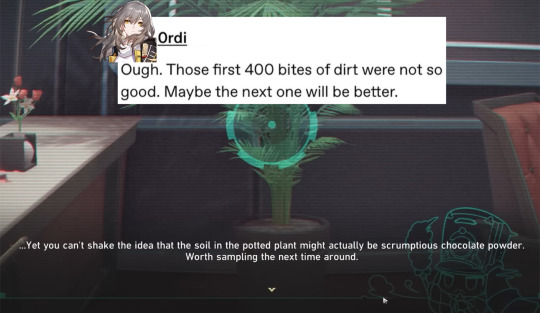
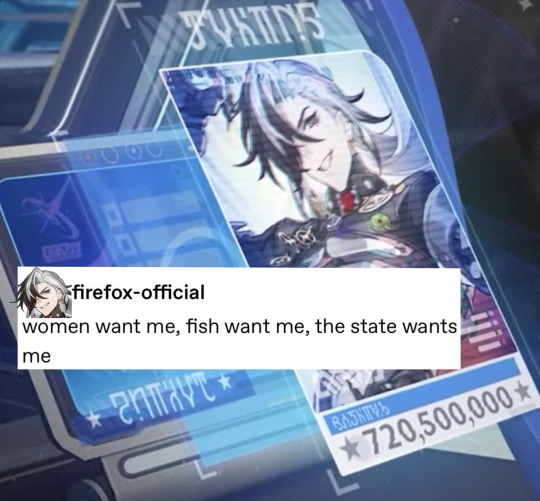
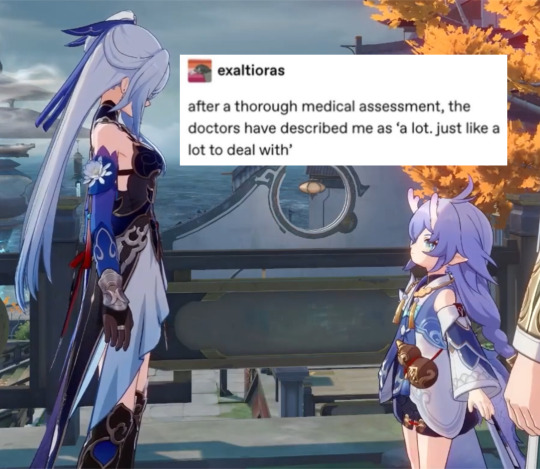
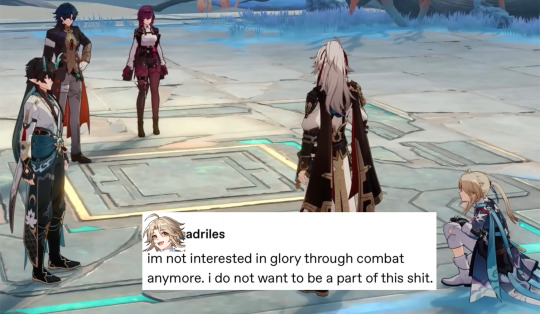
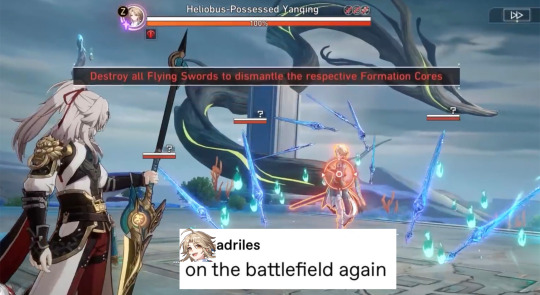
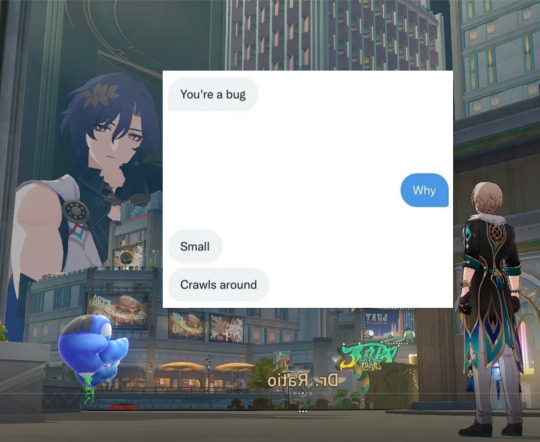
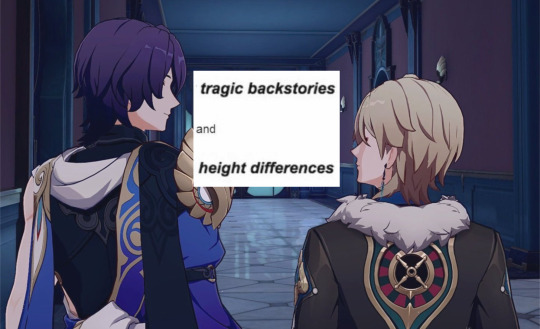
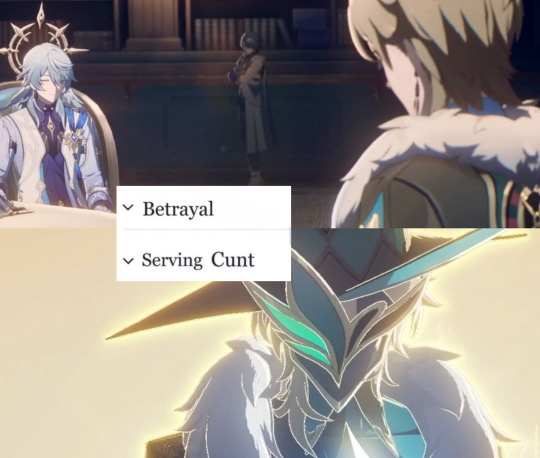
Making Incorrect H:SR Quotes Until I Run Out of (hopefully) Original Ideas - Pt. 3 - Random Screenshot Edition
[Pt. 1] [Pt. 2] [Pt. 4] [Pt. 5] [Pt. 6]
#hsr spoilers#hsr#honkai star rail#hsr textpost#hsr incorrect quotes#honkai star rail memes#hsr memes#honkai star rail meme#hsr meme#stelle#hsr trailblazer#boothill#jingliu#bailu#dan heng#blade#kafka#jing yuan#yanqing#dr ratio#aventurine#sunday#ough so many character tags. what a mess of a post. as always i sure do hope none of these have been done before!#anyways i've once again spent too long on these and can't tell if they're actually funny anymore but oh well i'm still postin' em#i've once again struggled and done my best to make good ID's in the alt text but i still don't know if they're done right aaaaa#also realized while doing so that i forgot to put Jingliu's face over the tumblr post's icon but i'm not fixing it now! just pretend i did#i don't believe i'll make any more like these bc it's harder than you'd think to find the exact images/screenshots to fit with the posts#but these were most of the ones that i felt needed the extra context anyways. now i'll return to my usual lower-effort edits#oh god also ignore how the sandpit one is flipped. i had to do that to get them on the right sides to match the messages 😭
826 notes
·
View notes
Text
i need ghoap frantically making out against a door finally taking the leap on their feelings. need ghost grinding against soap, expecting to find him just as hard as him, only to feel nothing
and in all his wisdom and experience, he concludes soap was tortured and never told him
he’s trying to think of a delicate way to say he understands, that he’s been through it and it doesn’t change anything about how he feels (and who the fuck touched him so he can hunt them down and rend them limb from limb)
meanwhile trans!soap’s just trying to find the best angle to grind his cunt on ghost’s thigh
just it never even entering ghost’s head bc he’s never known a trans person but he has met plenty of people who’ve been tortured - himself included - so of course that’s his logical leap
soap takes off his shirt and he sees his top surgery scars and ghost asks if he wants him to kill the one who did it and soap just hums like, “actually, man did pretty good, they healed real well,” and ghost’s just teary-eyes with awe at how well he’s coping, “looking on the bright side, that’s my johnny.”
imagine he thinks johnny was fully castrated but sees he’s determined to still have a sex life with him so he buys packers and straps to help him bc hell yeah healing and soap’s just like, “holy shit i’ve never had such a thoughtful partner before, such a sweet man, lt.”
#he a little confused but he got the spirit#its so good bc it can be super angsty of ghost really dreading whats been done to his sergeant and trying to make it right#or just go full crack treated seriously and have fun with it#i love just completely oblivious ghost#in any military context hes the smartest guy in the room#he always knows the play and has more experience than anyone#but stick him in the normal world? man is Lost#ghost just thinks hes had some kind of reconstruction surgery after being tortured and accepts thats what johnny looks like#bc hes never seen a pussy before#it takes years for soap to actually come out to him bc he just never thought to#hes seen him naked theyve literally slept together what else is there for him to say#then he shows him like a family album or something and ghosts just like ‘why arent you in any of these i only see girls’#and he just goes ‘hang on a second’#soap gets one of his sporadic periods one night and panics a little thinking it would weird ghost out or remind him that hes not cis#but ghost just thinks its a normal part of such a thorough reconstruction that hed bleed sometimes#and doesnt question it when soap grabs a pad out of his drawer bc ‘thats such a good way of handling the discharge my johnnys so smart’#just really supportive ghost for the wrong reasons#coming out of my cage and ive been doing just fine.txt#we’re a team. ghost team#soapghost#ghostsoap#simon ghost riley#ghost cod#john soap mactavish#soap cod#save post
594 notes
·
View notes
Text
A central element of the myth of [Eleanor of Aquitaine] is that of her exceptionalism. Historians and Eleanor biographers have tended to take literally Richard of Devizes’s conventional panegyric of her as ‘an incomparable woman’ [and] a woman out of her time. […] Amazement at Eleanor’s power and independence is born from a presentism that assumes generally that the Middle Ages were a backward age, and specifically that medieval women were all downtrodden and marginalized. Eleanor’s career can, from such a perspective, only be explained by assuming that she was an exception who rose by sheer force of personality above the restrictions placed upon twelfth-century women.
-Michael R. Evans, Inventing Eleanor: The Medieval and Post-Medieval Image of Eleanor of Aquitaine
"...The idea of Eleanor’s exceptionalism rests on an assumption that women of her age were powerless. On the contrary, in Western Europe before the twelfth century there were ‘no really effective barriers to the capacity of women to exercise power; they appear as military leaders, judges, castellans, controllers of property’. […] In an important article published in 1992, Jane Martindale sought to locate Eleanor in context, stripping away much of the conjecture that had grown up around her, and returning to primary sources, including her charters. Martindale also demonstrated how Eleanor was not out of the ordinary for a twelfth-century queen either in the extent of her power or in the criticisms levelled against her.
If we look at Eleanor’s predecessors as Anglo-Norman queens of England, we find many examples of women wielding political power. Matilda of Flanders (wife of William the Conqueror) acted as regent in Normandy during his frequent absences in England following the Conquest, and [the first wife of Henry I, Matilda of Scotland, played some role in governing England during her husband's absences], while during the civil war of Stephen’s reign Matilda of Boulogne led the fight for a time on behalf of her royal husband, who had been captured by the forces of the empress. And if we wish to seek a rebel woman, we need look no further than Juliana, illegitimate daughter of Henry I, who attempted to assassinate him with a crossbow, or Adèle of Champagne, the third wife of Louis VII, who ‘[a]t the moment when Henry II held Eleanor of Aquitaine in jail for her revolt … led a revolt with her brothers against her son, Philip II'.
Eleanor is, therefore, less the exception than the rule – albeit an extreme example of that rule. This can be illustrated by comparing her with a twelfth century woman who has attracted less literary and historical attention. Adela of Blois died in 1137, the year of Eleanor’s marriage to Louis VII. […] The chronicle and charter evidence reveals Adela to have ‘legitimately exercised the powers of comital lordship’ in the domains of Blois-Champagne, both in consort with her husband and alone during his absence on crusade and after his death. […] There was, however, nothing atypical about the nature of Adela’s power. In the words of her biographer Kimberley LoPrete, ‘while the extent of Adela’s powers and the political impact of her actions were exceptional for a woman of her day (and indeed for most men), the sources of her powers and the activities she engaged in were not fundamentally different from those of other women of lordly rank’. These words could equally apply to Eleanor; the extent of her power, as heiress to the richest lordship in France, wife of two kings and mother of two or three more, was remarkable, but the nature of her power was not exceptional. Other noble or royal women governed, arranged marriages and alliances, and were patrons of the church. Eleanor represents one end of a continuum, not an isolated outlier."
#It had to be said!#eleanor of aquitaine#historicwomendaily#angevins#my post#12th century#gender tag#adela of blois#I think Eleanor's prominent role as dowager queen during her sons' reigns may have contributed to her image of exceptionalism#Especially since she ended up overshadowing both her sons' wives (Berengaria of Navarre and Isabella of Angouleme)#But once again if we examine Eleanor in the context of her predecessors and contemporaries there was nothing exceptional about her role#Anglo-Saxon consorts before the Norman Conquest (Eadgifu; Aelfthryth; Emma of Normandy) were very prominent during their sons' reigns#Post-Norman queens were initially never kings' mothers because of the circumstances (Matilda of Flanders; Edith-Matilda; and#Matilda of Boulogne all predeceased their husbands; Adeliza of Louvain never had any royal children)#But Eleanor's mother-in-law Empress Matilda was very powerful and acted as regent of Normandy during Henry I's reign#Which was a particularly important precedent because Matilda's son - like Eleanor's sons after him - was an *adult* when he became King.#and in France Louis VII's mother Adelaide of Maurienne was certainly very powerful and prominent during Eleanor's own queenship#Eleanor's daughter Joan's mother-in-law Margaret of Navarre had also been a very powerful regent of Sicily#(etc etc)#So yeah - in itself I don't think Eleanor's central role during her own sons' reigns is particularly surprising or 'exceptional'#Its impact may have been but her role in itself was more or less the norm
396 notes
·
View notes
Text
Double Indemnity, Veritas Ratio and Aventurine

This was originally a part of my compilation post as a short analysis on the Double Indemnity references, linking to this great thread by Manya on Twitter. However, I've recently watched the movie and found that the parallels run much deeper than just the mission name and the light cone itself, plus as the short synopsis I've read online. Since there isn't really an in-depth attempt at an analysis on the film in relation to the way Aventurine and Ratio present themselves throughout Penacony, I thought I'd take a stab at doing just that. I will also be bringing up things from Manya's thread as well as another thread that has some extra points.
Disclaimer that I... don't do analyses very often. Or write, in general — I'm someone who likes to illustrate their thoughts (in the artistic sense) more than write. There's just something about these two that makes me want to rip into them so badly, so here we are. If there's anything you'd like to add or correct me on, feel free to let me know in the replies or reblogs, or asks. This ended up being a rather extensive deep dive into the movie and its influences on the pairing, so please keep that in mind when pressing Read More.
There are two distinct layers on display in Ratio and Aventurine's relationship throughout Penacony, which are references to the two most important relationships in the movie — where they act like they hate/don’t know each other, and where they trust each other.
SPOILER WARNING for the entire movie, by the way. You can watch the film for free here on archive.org, as well as follow along with the screenplay here. I will also be taking dialogue and such from the screenplay, and cite quotes from the original novel in its own dedicated section. SPOILER WARNING for the Cat Among Pigeons Trailblaze mission, as well.

CONTENT WARNING FOR MENTIONS OF SUICIDE. YOU HAVE BEEN WARNED.
To start, Double Indemnity (1944) is a film noir by Billy Wilder (and co-written by Raymond Chandler) based on the novel of the same name by James M. Cain (1927). There are stark differences between the movie adaptation and the original novel which I will get into later on in this post, albeit in a smaller section, as this analysis is mainly focused on the movie adaptation. I will talk about the basics (summaries for the movie and the game, specifically the Penacony mission in tandem with Ratio and Aventurine) before diving into the character and scene parallels, among other things.

—
[THE NAME]
The term "double indemnity" is a clause in which if there’s a case of accidental death of a statistically rare variety, the insurance company has to pay out multiple of the original amount. This excludes deaths by murder, suicide, gross negligence, and natural causes.

The part of the mission in Cat Among Pigeons where Ratio and Aventurine meet with Sunday is named after the movie. And before we get further into things, let's get this part out of the way: The Chinese name used in the mission is the CN title of the movie, so there's no liberties taken with the localization — this makes it clear that it’s a nod to the movie and not localization doing its own thing like with the mission name for Heaven Is A Place On Earth (EN) / This Side of Paradise (人间天堂) (CN).

—
[SUMMARY OF THE 1944 MOVIE]
Here I summarised the important parts that will eventually be relevant in the analysis related to the game.

Insurance salesman Walter Neff, wounded from a gunshot, enters his office and confesses his crime on a dictaphone to his boss Barton Keyes, the claims manager. Much earlier, he had met Phyllis Dietrichson, the wife of Mr. Dietrichson and former nurse. Neff had initially wanted to meet Mr. Dietrichson because of car insurance. Phyllis claims her husband is mean to her and that his life insurance goes to his daughter Lola. With Neff seduced by Phyllis, they eventually brew up a scheme to murder Mr. Dietrichson in such a way that they activate the "double indemnity" clause, and the plan goes off almost perfectly. Initially, the death is labeled a suicide by the president of the company, Norton.
Keyes finds the whole situation suspicious, and starts to suspect Phyllis may have had an accomplice. The label on the death goes from accidental, to suicide, to then murder. When it’s ruled that the husband had no idea of the accidental policy, the company refuses to pay. Neff befriends Phyllis’ stepdaughter Lola, and after finding out Phyllis may have played a part in the death of her father’s previous wife, Neff begins to fear for Lola and himself, as the life insurance would go all towards her, not Phyllis.
After the plan begins to unravel as a witness is found, it comes out that Lola’s boyfriend Nino Zachette has been visiting Phyllis every night after the murder. Neff goes to confront Phyllis, intending to kill her. Phyllis has her own plans, and ends up shooting him, but is unable to fire any more shots once she realises she did love him. Neff kills her in two shots. Soon after telling Zachette not to go inside the house, Neff drives to his office to record the confession. When Keyes arrives, Neff tells him he will go to Mexico, but he collapses before he could get out of the building.
—
[THE PENACONY MISSION TIMELINE]

I won’t be summarising the entirety of Aventurine and Ratio’s endeavours from the beginning of their relationship to their final conversation in Heaven Is A Place On Earth the same way as I summarised the plot of the movie, so I will instead present a timeline. Bolded parts means they are important and have clear parallels, and texts that are in [brackets] and italics stand for the names of either the light cone, or the mission names.
[Final Victor] Their first meeting. Ratio’s ideals are turned on its head as he finally meets his match.
Several missions happen in-between their first encounter and the Penacony project. They come to grow so close and trusting with each other that they can guess, understand each other’s thoughts, way of thinking and minds even in high stakes missions. Enough to pull off the Prisoner’s Dilemma (Aventurine’s E1) and Stag Hunt Game (Aventurine’s E6) and come out on top.
Aventurine turns towards Ratio for assisting him in the Penacony project. Ratio's involvement in the project is implied to be done without the knowledge of Jade, Topaz, and the IPC in general, as he was only sent to Penacony to represent the Intelligentsia Guild, and the two other Stonehearts never mention Ratio.
Aventurine and Ratio cook up the plan to deceive Sunday before ever setting foot on Penacony. Aventurine does not tell Ratio the entirety of his plan.
Aventurine convinces Topaz and Jade to trust him with their Cornerstones. Aventurine also breaks his own Cornerstone and hides it along with the jade within a bag of gift money.
[The Youth Who Chase Dreams] They enter Penacony in the Reverie Hotel. Aventurine is taken to the side by Sunday and has all his valuables taken, which includes the gift money that contains the broken aventurine stone, the jade, and the case containing the topaz.
Aventurine and Ratio speak in a “private” room about how Aventurine messed up the plan. After faking an argument to the all-seeing eyes of Sunday, Ratio leaves in a huff.
Ratio, wearing his alabaster head, is seen around Golden Hour in the (Dusk) Auction House by March 7th.
[Double Indemnity] Ratio meets up with Sunday and “exposes” Aventurine to him. Sunday buys his “betrayal”, and is now in possession of the topaz and jade. Note that this is in truth Ratio betraying Sunday all along.
Ratio meets up with Aventurine again at the bar. Ratio tells Aventurine Sunday wants to see him again.
They go to Dewlight Pavilion and solve a bunch of puzzles to prove their worth to Sunday.
They meet up with Sunday. Sunday forces Aventurine to tell the truth using his Harmony powers. Ratio cannot watch on. It ends with Aventurine taking the gift money with his Cornerstone.
[Heaven Is A Place On Earth] They are in Golden Hour. Ratio tries to pry Aventurine about his plan, but Aventurine reins him in to stop breaking character. Ratio gives him the Mundanite’s Insight before leaving. This is their final conversation before Aventurine’s grandest death.
Now how exactly does the word “double indemnity” relate to their mission in-game? What is their payout? For the IPC, this would be Penacony itself — Aventurine, as the IPC ambassador, handing in the Jade Cornerstone as well as orchestrating a huge show for everybody to witness his death, means the IPC have a reason to reclaim the former prison frontier. As for Ratio, his payout would be information on Penacony’s Stellaron, although whether or not this was actually something he sought out is debatable. And Aventurine? It’s highly implied that he seeks an audience with Diamond, and breaking the Aventurine Cornerstone is a one way trip to getting into hot water with Diamond. With Aventurine’s self-destructive behaviour, however, it would also make sense to say that death would be his potential payout, had he taken that path in the realm of IX.
Compared to the movie, the timeline happens in reverse and opposite in some aspects. I will get into it later. As for the intended parallels, these are pretty clear and cut:
Veritas Ratio - Walter Neff
Aventurine - Phyllis Dietrichson
Sunday - Mr. Dietrichson

There is one other character who I feel also is represented in Ratio, but I won’t bring them up until later down the line.
For the sake of this analysis, I won’t be exploring Sunday’s parallel to Mr. Dietrichson, as there isn’t much on Dietrichson’s character in the first place in both the movie and the novel. He just kind of exists to be a bastard that is killed off at the halfway point. Plus, the analysis is specifically hyper focused on the other two.
—
[SO, WHAT’S THE PLAN?]
To make things less confusing in the long run whenever I mention the words “scheme” and “plan”, I will be going through the details of Phyllis and Neff’s scheme, and Aventurine and Ratio’s plan respectively. Anything that happens after either pair separate from another isn’t going to be included. Written in a way for the plans to have gone perfectly with no outside problems.

Phyllis and Neff —> Mr. Dietrichson
Goal: Activate the double indemnity clause by killing Mr. Dietrichson and making it look like a freak train accident
Payout: Twice or more of the face value of the life insurance ($100,000)
Main Actor: Walter Neff | Accomplice: Phyllis Dietrichson
During the entire time until the payout, Phyllis and Neff have to make sure to any outsiders that they look like complete strangers instead of lovers in an affair.
Step-by-step:
Neff convinces Mr. Dietrichson to sign the policy with the clause without him suspecting foul play, preferably with a third party to act as an alibi. This is done discreetly, making Mr. Dietrichson not read the policy closely and being told to just sign.
Neff and Phyllis talk to each other about small details through the phone (specified to be never at Phyllis’ own house and never when Neff was in his office) and in the marketplace only, to make their meetings look accidental. They shouldn’t be seen nor tracked together, after all.
Phyllis asks Mr. Dietrichson to take the train. She will be the one driving him to the train station.
On the night of the murder, after making sure his alibi is airtight, Neff sneaks into their residence and hides in their car in the second row seating, behind the front row passenger seat. He wears the same colour of clothes as Mr. Dietrichson.
Phyllis and Mr. Dietrichson get inside the car — Phyllis in the driver’s seat and Mr. Dietrichson in the passenger seat. Phyllis drives. On the way to the train station, she makes a detour into an alley. She honks the horn three times.
After the third honk, Neff breaks Mr. Dietrichson’s neck. The body is then hidden in the second row seating under a rug.
They drive to the train station. Phyllis helps Neff, now posing as Mr. Dietrichson, onto the train. The train leaves the station.
Neff makes it to the observation platform of the parlour car and drops onto the train tracks when nobody else is there.
Phyllis is at the dump beside the tracks. She makes the car blink twice as a signal.
The two drag Mr. Dietrichson’s corpse onto the tracks.
They leave.
When Phyllis eventually gets questioned by the insurance company, she pretends she has no idea what they are talking about and eventually storms off.
Phyllis and Neff continue to lay low until the insurance company pays out.
Profit!
Actual Result: The actual murder plan goes almost smoothly, with a bonus of Mr. Dietrichson having broken a leg. But with him not filing a claim for the broken leg, a witness at the observation platform, and Zachette visiting Phyllis every night after the murder, Keyes works out the murder scheme on his own, but pins the blame on Phyllis and Zachette, not Neff.

Now for Aventurine and Ratio. You can skip this section if you understand how deep their act goes, but to those who need a refresher, here’s a thorough explanation:
Aventurine and Ratio —> Sunday
Goal: Collect the aventurine stone without Sunday knowing, ruin the dream (and create the grandest death)
Payout: Penacony for the IPC, information on the Stellaron for Ratio, a meeting with Diamond / death for Aventurine
Main Actor: Aventurine | Accomplice: Veritas Ratio
From the moment they step onto Penacony, they are under Sunday’s ever present and watchful eyes. “Privacy” is a foreign word to The Family. They have to act like they don’t like each other’s company the entire time and feed Sunday information through indirect means so that the eventual “betrayal” by Ratio seems truthful to Sunday. Despite what it looks like, they are closer than one would ever think, and Ratio would never sell out a person purely for information.
Step-by-step:
After Sunday takes away the bag of gift money and box, Aventurine and Ratio talk in a room in the Reverie Hotel.
Aventurine establishes the Cornerstones’ importance, and how he lost the gift money and the case containing the Cornerstones to Sunday. Ratio turns to leave, saying “some idiot ruined everything”, meaning the Cornerstones were vital to their plan. (Note that Ratio is not wearing his alabaster head while saying it to said “idiot”.)
Aventurine then proceeds to downplay the importance of the Cornerstones, stating they are “nothing more than a few rocks” and “who cares if they are gone”. This lets Sunday know that something suspicious may be going on for him to act like it’s nothing, and the mention of multiple stones, and leaves him to look up what a Cornerstone is to the Ten Stonehearts of the IPC.
Ratio points out his absurd choice of outfit, mentioning the Attini Peacock and their song.
Ratio implies that without the aventurine stone, he is useless to the IPC. He also establishes that Aventurine is from Sigonia(-IV), and points out the mark on his neck. To Sunday, this means that Aventurine is shackled to the IPC, and how Aventurine may possibly go through extreme lengths to get the stone back, because a death sentence always looms above him.
Aventurine claims Ratio had done his homework on his background, which can be taken that this is their very first time working together. (It isn’t, and it only takes one look to know that Aventurine is an Avgin because of his unique eyes, so this comment does not make sense even in a “sincere” way, a running theme for the interaction.)
Ratio mentions how the true goal is to reclaim Penacony for the IPC, establishing their ulterior motive for attending the banquet.
Ratio asks if Aventurine went to pre-school in Sigonia after saying trust was reliant on cooperation. Aventurine mentions how he didn’t go to school and how he doesn’t have any parents. He even brings up how friends are weapons of the Avgins. This tells Sunday that the Avgins supposedly are good at manipulation and potentially sees Ratio possibly betraying Aventurine due to his carelessness with his “friends”. Sunday would also then research about the Avgins in general (and research about Sigonia-IV comes straight from the Intelligentsia Guild.)
Ratio goes to Dewlight Pavilion in Sunday’s Mansion and exposes a part of Aventurine’s “plan”. When being handed the suitcase, Ratio opens it up due to his apparent high status in the IPC. He tells Sunday that the Cornerstone in the suitcase is a topaz, not an aventurine, and that the real aventurine stone is in the bag of gift money. This is a double betrayal — on Aventurine (who knows) and Sunday (who doesn’t). Note that while Ratio is not officially an IPC member in name — the Intelligentsia Guild (which is run by the IPC head of the Technology Department Yabuli) frequently collaborates with the IPC. Either Aventurine had given him access to the box, or Ratio’s status in general is ambiguous enough for Sunday not to question him further. He then explains parts of Aventurine’s gamble to Sunday in order to sell the betrayal. Note that Ratio does not ever mention Aventurine’s race to Sunday.
Ratio brings Aventurine to Sunday. Aventurine offers help in the investigation of Robin's death, requesting the gift money and the box in return.
Sunday objects to the trade offer. Aventurine then asks for just the bag. A classic car insurance sales tactic. Sunday then interrogates Aventurine, and uses everything Ratio and Aventurine brought up in the Reverie Hotel conversation and their interactions in the Mansion, as well as aspects that Ratio had brought up to Sunday himself.
Aventurine feigns defeat and ignorance enough so that Sunday willingly lets him go with the gift bag. After all is said and done, Aventurine leaves with the gift money, where the Aventurine Cornerstone is stored all along.
Ratio and Aventurine continue to pretend they dislike each other until they go their separate ways for their respective goals and plans. Aventurine would go on to orchestrate his own demise at the hands of Acheron, and Ratio… lurks in the shadows like the owl he is.
Profit!
Actual Result: The plan goes perfectly, even with minor hiccups like Ratio coming close to breaking character several times and Aventurine being sentenced to execution by Sunday.
This is how Sunday uses the information he gathered against Aventurine:
• Sunday going on a tirade about the way Aventurine dresses and how he’s not one to take risks — Ratio’s comment about Aventurine’s outfit being peacock-esque and how he’s “short of a feather or two”. • “Do you own a Cornerstone?” — Ratio talked about the aventurine stone. • “Did you hand over the Cornerstone to The Family when you entered Penacony?” — Aventurine mentioned the box containing the Cornerstones. • “Does the Cornerstone you handed over to The Family belong to you?” — Aventurine specifically pluralized the word Cornerstone and “a bunch of rocks” when talking to Ratio. • “Is your Cornerstone in this room right now?” — The box in the room supposedly contained Aventurine’s own cornerstone, when Aventurine mentioned multiple stones. • “Are you an Avgin from Sigonia?” —Aventurine mentioned that he’s an Avgin, and Ratio brought up Sigonia. • “Do the Avgins have any ability to read, control, and manipulate one’s own or another’s minds?” — Aventurine’s comment on how friends are weapons, as well as Sunday’s own research on the Avgins, leading him to find out about the negative stereotypes associated with them. • “Do you love your family more than yourself?” — His lost parents. “All the Avgins were killed in a massacre. Am I right?” — Based on Sunday’s research into his background. • “Are you your clan’s sole survivor?” — Same as the last point. “Do you hate and wish to destroy this world with your own hands?” — Ratio mentioned the IPC’s goal to regain Penacony, and Aventurine’s whole shtick is “all or nothing”. • “Can you swear that at this very moment, the aventurine stone is safe and sound in this box?” — Repeat.
As seen here, both duos have convoluted plans that involve the deception of one or more parties while also pretending that the relationship between each other isn’t as close as in reality. Unless you knew both of them personally and their histories, there was no way you could tell that they have something else going on.
On to the next point: Comparing Aventurine and Ratio with Phyllis and Neff.
—
[NEFF & PHYLLIS — RATIO & AVENTURINE]

With the short summaries of the movie and the mission out of the way, let’s look at Phyllis and Neff as characters and how Aventurine and Ratio are similar or opposite to them.

Starting off with Aventurine and Phyllis. Here is where they are the most similar:
Phyllis is blonde and described as a provocative woman. Aventurine is also a blond and eyes Ratio provocatively in the Final Victor light cone.
Phyllis was put under surveillance after Keyes starts figuring out that the so-called accidental death/suicide may have been a murder after all. Similarly, Aventurine was watched by Sunday the entire time in Penacony.
Phyllis never tells Neff how she's seeing another man on the side to possibly kill him too (as well as how she was responsible for the death of her husband‘s previous wife). Aventurine also didn't tell Ratio the entirety of his plan of his own death.
Phyllis puts on a somewhat helpless act at first but is incredibly capable of making things go her way, having everything seemingly wrapped around her finger. Aventurine — even when putting on a facade that masks his true motives — always comes out at the top.
Now the differences between Aventurine and Phyllis:
Phyllis does not care about her family and has no issue with killing her husband, his previous wife, and possibly her daughter Lola. Opposite of that, Aventurine is a family man… with no family left, as well as feeling an insane level of survivor’s guilt.
Really, Phyllis just… does not care at all about anyone but herself and the money. Aventurine, while he uses every trick in the book to get out on top, does care about the way Jade and Topaz had entrusted him with their Cornerstones, in spite of the stones being worth their lives.
Phyllis also uses other people to her advantage to get what she wants, often behind other people's backs, with the way she treats Neff and Zachette. Aventurine does as well (what with him making deals with the Trailblazer while also making a deal with Black Swan that involves the Trailblazer). The difference here is Phyllis uses her allure deliberately to seduce men while Aventurine simply uses others as pawns while also allowing others to do the same to himself.
Phyllis makes no attempt at compromising the policy when questioned by Norton. Aventurine ends up compromising by only taking the gift money (which is exactly what he needs).
The wig that Barbara Stanwyck (the actress of Phyllis) wore was chosen to make her look as “sleazy” as possible, make her look insincere and a fraud, a manipulator. A sort of cheapness. Aventurine’s flashy peacock-esque outfit can be sort of seen as something similar, except the outfit isn’t cheap.

Moving on to Ratio’s similarities to Neff… There isn’t much to extrapolate here as Ratio is more of a side character in the grand scheme of Penacony, however this is what I’ve figured out.
Neff has dark hair. Ratio has dark purple hair.
Neff almost never refers to Phyllis by her name when speaking with her, only as “baby”. The few times he refers to her as Phyllis or Mrs. Dietrichson is during their first conversations and when he has to act like he doesn’t know her. Ratio never calls Aventurine by his name when he’s around him — only as “gambler”, sometimes “damned” or “dear” (EN-only) gambler. Only in the Aventurine's Keeping Up With Star Rail episode does Ratio repeatedly say his name, and yet he still calls him by monikers like “gambler” or, bafflingly, a “system of chaos devoid of logic”.
Both Neff and Ratio committed two betrayals: Neff on Mr. Dietrichson and Keyes, and Ratio on Sunday and Aventurine. With the former cases it was to reach the end of the trolley line, and with the latter it was on a man who had put his trust in him.
As for the differences…
Neff is described as someone who’s not smart by his peers. Ratio is someone who is repeatedly idolised and put on a pedestal by other people.
Neff is excellent at pretending to not know nor care for Phyllis whenever he speaks about her with Keyes or when he and she are in a place that could land them in hot water (the office, the mansion when there are witnesses). His acting is on the same level as Phyllis. With Ratio it’s… complicated. While he does pull off the hater act well, he straight up isn’t great at pretending not to care about Aventurine’s wellbeing.
Instead of getting his gunshot wound treated in the hospital like a normal person, Neff makes the absolutely brilliant decision of driving to his office and talking to a dictaphone for hours. Needless to say, this is something a medical doctor like Ratio would never do.

Now here's the thing. Though it's very easy to just look at Phyllis and Neff in the movie and go "okay, Aventurine is Phyllis and Ratio is Neff — end of story" and leave it at that, I find that they both take from the two leads in different ways. Let me explain. Beginning with Aventurine and Neff…
Neff is the one who hatches the plan and encourages Phyllis to go through and claim the double indemnity clause in the first place. He is also the key player of his own risky plan, having to fake being the husband to enter the train as well as fake the death. Aventurine puts himself at great risk just by being in Sunday’s presence, and hoping that Sunday wouldn’t figure out that the green stone he had uncovered wasn’t the aventurine stone.
Adding onto the last point, Neff had fantasised about pulling off the perfect murder for a long time — the catalyst was simply him meeting Phyllis. Aventurine presumably sought out Ratio alone for his plan against Sunday.
Neff makes a roulette wheel analogy and talks about a pile of blue and yellow poker chips (the latter in the script only). I don‘t even have to explain why this is relevant here. (Aventurine’s Ultimate features a roulette wheel and the motif is on his belt, thigh strap, and back, too. And of course, Aventurine is all about his chips.)
Neff has certain ways to hide when he’s nervous, which include hiding his hands in his pockets when they were shaking, putting on glasses so people couldn’t see his eyes. Aventurine hides his left hand behind his back when he’s nervous: Future Aventurine says that "they don't know the other hand is below the table, clutching [his] chips for dear life", and in multiple occasions such as the Final Victor LC, his character trailer, and even in his boss form in the overworld you can see that Aventurine hides his left hand behind his back. And he is also seen with his glasses on sometimes.
Neff says a bunch of stuff to make sure that Phyllis acts her part and does not act out of character (i.e. during their interactions at the market), like how Aventurine repeatedly tries to get Ratio back on track from his subpar acting.
Neff is always one step ahead of the game, and the only reason the plan blows up in his face is due to outside forces that he could not have foreseen (a witness, Keyes figuring out the plan, the broken leg). Aventurine meanwhile plays 5D chess and even with the odds against him, he uses everything he can to come out on the top (i. e. getting Acheron to kill him in the dream).
Even after coming home on the night of the murder, Neff still felt that everything could have gone wrong. Aventurine, with his blessed luck, occasionally wavers and fears everything could go wrong whenever he takes a gamble.
Neff was not put under surveillance by Keyes due to him being extensive with his alibi. After witnessing Robin’s death with eyewitnesses at the scene, the Family had accepted Aventurine’s alibi, though he would be under watch from the Bloodhounds according to Ratio.
Neff talks about the entire murder scheme to the dictaphone. Aventurine during Cat Among Pigeons also retells his plan, albeit in a more convoluted manner, what with his future self and all.

Continuing with Ratio and Phyllis, even with their personalities and motivations being quite different, they do have a few commonalities.
Phyllis was a nurse. Ratio is a medical doctor.
Her name is Greek of origin. Veritas Ratio, though his name is Latin, has Greco-Roman influences throughout his entire character.
The very first scene Phyllis appears in has her wearing a bath towel around her torso. Ratio loves to take baths to clear his mind.
Phyllis was instructed by Neff to be at the market every morning at eleven buying things. Ratio is seen in an auction house with his alabaster head on so no one could recognize him.
Phyllis mostly acts as an accomplice to the scheme, being the one to convince her husband to take the train instead. She is also generally seen only when Neff is involved. Ratio plays the same role as well, only really appearing in the story in relation to Aventurine as well as being the accomplice in Aventurine’s own death. Even him standing in the auction house randomly can be explained by the theory that he and Aventurine had attempted to destabilise Penacony’s economy through a pump and dump scheme.
With these pointers out of the way, let’s take a closer look at select scenes from the film and their relation to the mission and the pair.
—
[THE PHONE CALL — THE REVERIE HOTEL]

Before the murder, there is a scene with a phone call between Phyllis and Neff discussing the plan while Keyes is in the same room as Neff. Neff has to make sure that Keyes doesn’t think of anything of the phone call, so he acts like he’s calling a “Margie”, and says a bunch of stuff that sounds innocent out of context (“Can’t I call you back, ‘Margie’?” “What color did you pick out?” “Navy blue. I like that fine”), but are actually hinting at the real plan all along (the suit that Mr. Dietrichson wears.)
In a roundabout way, the conversation between Ratio and Aventurine in the Reverie Hotel can be seen as the opposite of that scene — with the two talking about their supposed plan out loud on Penacony ground, a place where the Family (and in turn, Sunday) has eyes everywhere. Despite being in a “private” room, they still act like they hate each other while airing out details that really do not make sense to air out if they really did meet the first time in Penacony (which they didn’t — they’ve been on several missions beforehand). It’s almost like they want a secret third person to know what they were doing, instead of trying to be hushed up about it. The TVs in the room that Sunday can look through based on Inherently Unjust Destiny — A Moment Among The Stars, the Bloodhound statue that disappears upon being inspected, the owl clock on the left which side eyes Ratio and Aventurine, all point to that Sunday is watching their every move, listening to every word.
Rewinding back to before the phone call, in one of the encounters at the marketplace where they “accidentally” run into each other, Phyllis talks about how the trip was off. How her husband wouldn’t get on the train, which was vital for their plan, because of a broken leg. All this, while pretending to be strangers by the passersby. You could say that the part where Ratio almost leaves because Aventurine had “ruined the plan” is the opposite of this, as the husband breaking his leg was something they couldn’t account for, while Aventurine “being short of a few feathers” was entirely part of the plan.
—
[QUESTIONING PHYLLIS — THE INTERROGATION]

This section is going to be a little longer as I will cover two scenes in the movie in a more detailed manner — Mr. Dietrichson signing the policy, and Phyllis being questioned — and how they are represented in the Sunday-Aventurine interrogation and the prior conversation between Ratio and Sunday in multitudes of ways.
Going about their plan, Neff has to make sure that Mr. Dietrichson signs the policy with the double indemnity clause without him knowing the details, all the while having Phyllis (and Lola) in the same room. He and Phyllis have to pretend that they don’t know each other, and that this is just the standard accidental insurance process, instead of signing what would be his downfall. To sell it, he gets Mr. Dietrichson to sign two “copies” of the form, except with Mr. Dietrichson’s second signature, he’s duped into signing the accident insurance policy with the respective clause.
You can tie this to how Ratio goes to Sunday in order to “expose” the lie that the suitcase didn’t actually contain the Aventurine Cornerstone, as well as there being more than one Cornerstone involved in the scheme. Ratio must make sure that Sunday truly believes that he dislikes Aventurine’s company, while also making sure that Sunday doesn’t figure out the actual aventurine stone is broken and hidden in the gift bag. The scheme turns out to be successful, as Sunday retrieves the two Cornerstones, but not the aventurine stone, and truly does think that the green stone he has in his possession is the aventurine.

This whole scene with Sunday is also reminiscent of the interrogation scene in the middle of the movie, where Phyllis was questioned by the boss (Norton) who was deducing that Mr. Dietrichson's death was a suicide, not accidental death. Neff, Phyllis, Keyes and Norton were all in the same room, and Neff and Phyllis had to act like they never knew the other. Phyllis acts like she knows nothing about what Norton insinuates about her husband and eventually, Phyllis explodes in anger and storms out the room, even slamming the door. Her act is very believable to any outsider.

Now back to the Ratio and Sunday conversation. One glaring difference between the movie and here is that his acting isn’t great compared to either Phyllis nor Neff. It never was throughout the Penacony mission. He even comes very close to breaking character several times, and is even defending Aventurine in a somewhat aggressive manner during his one-on-one conversation with Sunday, as in he literally tells Sunday to see a shrink. It’s very different from the way he was acting in Herta Space Station — like Ratio cares about Aventurine too much to keep his hands off.
It's also worth pointing out that Neff doesn't speak a word when Phyllis was being interrogated. Similarly, Ratio is silent throughout the entire scene with Sunday and Aventurine, with his only “line” being a “hm”. When Aventurine calls him a wretch to his face, all he does is look to the side. In fact, he can only look at Aventurine when the other isn’t staring back. Almost like him uttering a single word would give them away. Or his acting is terrible when it has to do with Aventurine, as he has no issue doing the same thing in Crown of the Mundane and Divine (Mundane Troubles).
So, Sunday finds out about the Cornerstones and reveals them to Aventurine, and reasons that he cannot give them back to him because Aventurine had lied. Note that in that same scene, Aventurine attempted to use the two murders that had occurred beforehand against Sunday to retrieve his own cornerstone. Similarly, when it was revealed that Mr. Dietrichson did not know about the accident policy and that the so-called “accidental death” was not, in fact, accidental, the insurance company refused to pay out the money.
Unlike the movie, this was all planned, however. The double-crossing by Ratio, the gift money being the only thing required for Aventurine’s real plan. All of it was an act of betrayal against Sunday, in the same manner as the meticulous planning as Mr. Dietrichson’s murder — To sign the policy, get him to take the train, kill him on the way, and to have Neff pose as the husband on the train until the time is right to get off and lay the body on the tracks. A key difference is that they could not have expected their scheme to be busted wide open due to forces outside of their control, while Ratio and Aventurine went straight down the line for the both of them no matter what.
From here on out, we can conclude that the way Ratio and Aventurine present themselves in Penacony to onlookers is in line with Neff and Phyllis.
—
[“GOODBYE, BABY” — FINAL VICTOR]

And now for the (in)famous light cone, Final Victor. The thing that truly kickstarted the Ratio and Aventurine ship in the fanbase, and the partnership between the two in general. It’s a direct reference to the final confrontation between Neff and Phyllis in the movie.
I’ll fire through all the similarities between the two scenes.
During the respective scenes, Aventurine and Phyllis both outsmart their partner one way or the other: Aventurine with his one-sided game of Russian Roulette, and Phyllis hiding her gun underneath the cushions until Neff turned away.
The guns are owned by Phyllis and Aventurine, not Neff and Ratio.
Phyllis couldn’t bring herself to fire any more shots after she realised she truly did love Neff. Ratio could do nothing but watch as Aventurine did what he did — he couldn’t even pull away if the LC animation is anything to go by him struggling as Aventurine firmly keeps the gun to his chest.
Neff says he doesn’t buy (believe) that Phyllis loved him. She then goes “I’m not asking you to buy […]”. The LC description has Aventurine ask Ratio “You don’t believe me?”, while in the LC animation Ratio straight up says “You expect me to believe you?” and Aventurine answering “Why not, doctor/professor?”
The visual composition of the LC and the scene are nearly identical, from the lighting to the posing to the way Aventurine looks at Ratio — Aventurine and Ratio are even wearing different outfits to fit the scene better. The background in the LC is also like the blinders in the movie, just horizontal.
In the shot where Phyllis’ face is more visible, the way she looks at Neff is strikingly like the way provocatively looks at Ratio. Even their eyes have a visible shine — Phyllis’ eyes brightly shining the moment she realised she really fell in love with Neff, and Aventurine having just a little light return to his eyes in that specific moment.
And now the differences!
Neff holds the gun in his right hand. Aventurine makes Ratio hold his gun in his left.
Neff is the one who takes the gun from Phyllis‘ hand. Aventurine is the one who places the gun in Ratio’s hand and fires it.
Three gunshots are fired. In the movie, Phyllis shoots the first shot and Neff the second and third. Aventurine unloads the gun and leaves only one bullet for this game of Russian Roulette. He pulls the trigger three times, but they all turn out to be blanks.
Phyllis does not break her façade of not smiling until the very last moment where she gets shot. Aventurine is smiling the entire time according to the light cone description, whilst in the animation, it’s only when he guides the gun to his chest that he puts it on.
So, you know how Neff meets Phyllis and it all goes off the rails from there. The way Neff goes from a decent guy to willingly involve himself in a murder scheme, having his morals corrupted by Phyllis. His world having been turned upside down the moment he lays eyes on Phyllis in that first meeting. Doesn’t that sound like something that happened with the Final Victor LC? Ratio, a man all about logic and rationality — a scholar with eight PhDs to his name — all of that is flipped on its head the moment Aventurine pulls out his gun in their first meeting and forces Ratio to play a game of Russian roulette with him. Aventurine casually gambles using his own life like it’s nothing and seemingly without fear (barring his hidden left hand). All or nothing — and yet Aventurine comes out alive after three blanks. Poetic, considering there’s a consumable in the game called “All or Nothing” which features a broken chess piece and a poker chip bound together by a tie. The poker chip obviously represents the gambler, but the chess piece specifically stands for Ratio because he plays chess in his character trailer, his Keeping Up With Star Rail episode and his introduction is centred around him playing chess with himself. Plus, the design of the chess piece has golden accents, similar to his own chess set. In the end, Aventurine will always be the final victor.
Furthermore, Neff had deduced that Phyllis wanted to kill her husband and initially wanted no part in it, but in a subsequent visit it was his own idea that they trigger the double indemnity clause for more money. As the movie progresses though, he starts to have his doubts (thanks in part to him befriending Lola) and makes the move to kill Phyllis when everything starts to come to light. It’s strikingly similar to how Ratio initially wanted no part in whatever Aventurine had in mind when they first met, but in the subsequent missions where they were paired up, he willingly goes along with Aventurine's risky plans, and they come to trust each other. Enough so that Aventurine and Ratio can go to Penacony all on their own and put on an act, knowing that nobody in the IPC other than them can enter the Dreamscape. The mutual respect grew over time, instead of burning passionately before quickly fizzling out like in the movie.
Basically, in one scene, three shots (blanks) start a relationship, and in the other, it ends a relationship. In the anan magazine interview with Aventurine, he says himself that “form[ing] an alliance with just one bullet” with Ratio was one of his personal achievements. The moment itself was so impactful for both parties that it was immortalised and turned into a light cone.
—
[THE ENDING — GOLDEN HOUR]

The ending of Double Indemnity that made it into the final cut has Neff continue his confession on the dictaphone until he realised that he wasn’t alone in the room. Keyes had come inside at some point, but none had said a thing, only listening to a dead man speak of his crime. When Neff sees Keyes, they talk for a moment, Neff says he plans on fleeing to Mexico. Keyes does not think he will make it. He tries to leave, only to collapse at the front of the elevator, Keyes following just behind him. Neff attempts to light a cigar but is too weak to do so, so Keyes does it for him.
Parts of the ending can still be attributed to the interrogation scene between Sunday and Aventurine, so I’ll make this quick before moving on to the conversation in Heaven Is A Place On Earth, Ratio and Aventurine’s final conversation together. Once Sunday mentions how quickly Aventurine gave up the suitcase, he inflicts the Harmony’s consecration on him, which forces Aventurine to confess everything that Sunday asks of. In a way, it’s the opposite of what happens in the movie — where Neff willingly tells the truth about the murder to his coworker. Aventurine does not like Sunday, and Neff is close to Keyes. Ratio also does not speak, similarly to how Keyes didn’t speak and stood silently off to the side.
Post-interrogation in Golden Hour, Ratio worriedly prods at Aventurine and asks him about his plan. He then gives him the Mundanite’s Insight with the Doctor’s Advice inside when Aventurine tells him to leave. Throughout Heaven Is A Place On Earth, Aventurine gets weaker and his head starts to buzz, until he falls to the ground before he can hand in the final gems. Similarly, Neff progressively grows weaker as he records his confession. Keyes says he’s going to call a doctor and Neff says he’s planning to go to Mexico. And when Neff collapses near the elevator, they talk one final time and Keyes lights Neff’s cigar as the other was too weak to do so himself.

—
[OPPOSITE TIMELINES AND DEVELOPMENTS]
Remember how I said the way certain events happen in the movie and the game are mostly opposite and reverse of one another?
The Final Victor LC is the first meeting of Ratio and Aventurine, and Neff killing Phyllis is their final meeting.
Between that first and last meeting between Phyllis and Neff’s whirlwind romance, their relationship becomes strained which ultimately leads to Neff not trusting whatever Phyllis has to say at the end point of the movie. As for Ratio and Aventurine, the exact opposite had happened, to the point where Ratio trusts Aventurine enough to go along with his plans even if they went against his own ideals. The basis of the mission involved Veritas Ratio, whose full name includes the Latin word for “truth”, lying the entire time on Penacony.
Aventurine is sentenced to the gallows by Sunday after his unwilling interrogation. The movie starts and ends with Neff willingly confessing everything to Keyes.
It bears repeating, but I have to make it so clear that the trust between Ratio and Aventurine runs incredibly deep. Being able to predict what your partner says and thinks and plans in a mission as critical as the Penacony project is not something first-time co-workers can pull off flawlessly. All the while having to put on masks that prevent you from speaking sincerely towards one another lest you rat yourselves out. You have no way of contacting outside reinforcements from within Penacony, as the rest of the IPC are barred from entering. To be able to play everybody for fools while said fools believe you yourselves have handed your case on a silver platter requires a lot — trust, knowledge of the other, past experience, and so on. With Phyllis and Neff, the trust they had had been snuffed out when Neff grew closer to Lola and found out what kind of person Phyllis truly was on the inside. Phyllis did not trust nor love Neff enough and was going behind his back to meet with Zachette to possibly take Neff and Lola out. And the whole reason Neff wanted to perpetrate the murder was due to him being initially taken by Phyllis' appearance, which single handedly got the ball rolling on the crime.
Now then, how come trust is one of the defining aspects of Aventurine and Ratio’s relationship, when Phyllis and Neff’s trust eventually lead to both their deaths at the hands of the other? Sure, this can be explained away with the opposite theory, but there’s one other relationship involving Neff which I haven’t brought up in excruciating detail yet. The other side of Ratio and Aventurine’s relationship.
—
[NEFF & KEYES — AVENTURINE & RATIO]

Here is where it gets more interesting — while Phyllis and Neff are at the centre point of the movie, there is another character to whom Neff has a close relationship with — Keyes. It’s also the only relationship with no pretences, at least, until the whole murder thing happened and Neff had to hide his involvement from Keyes. Watching the movie, I couldn't help but feel there was something more to the two than meets the eye. I knew that queer readings of the film existed, but I didn't think too much of them until now. And though Aventurine and Ratio parallel Phyllis and Neff respectively, the fact that they also have traits of their opposite means that it wouldn’t be completely out of the question if parts of their relationship were also influenced by Keyes and Neff on a deeper and personal level. Let me explain.
Keyes and Neff were intimate friends for eleven years and have shown mutual respect and trust towards one another. They understood each other on a level not seen with Phyllis and Neff. Even after hearing Neff confess his crimes through the dictaphone (and eventually standing in the same room while Neff confessed), he still cared for the other man, and stayed with him when Neff collapsed at the front door. The only reason Keyes hadn’t deduced that it was Neff who was behind the murder was because he had his absolute trust in him. Keyes is also Neff’s boss, and they are always seen exchanging playful banter when they are on screen together. Neff even says the words “I love you, too” twice in the movie — first at the beginning and second at the end, as the final line. There’s also the persistent theme of Neff lighting Keyes’ cigarettes (which happens in every scene where they are face-to-face), except in the end where it’s Keyes who lights Neff’s.
Doesn’t that sound familiar? Mutual respect, caring too much about the other person, the immense amount of trust… Ratio says he’s even the manager of the Penacony project (which may or may not be a lie), and despite their banter being laced with them acting as “enemies”, you can tell that in Dewlight Pavilion pre-Sunday confrontation that Aventurine genuinely likes Ratio’s company and believes him to be a reliable person. From the way he acts carefree in his words to the thoughts in his head, as seen in the mission descriptions for Double Indemnity. Their interactions in that specific mission are possibly the closest thing to their normal way of speaking that we get to see on Penacony.

Not to mention, this is the way Neff describes Keyes. He even says (not in the script) “you never fooled me with your song and dance, not for a second.” Apart from the line about the cigar ashes, doesn’t this ring a bell to a certain doctor? “Jerk” with a heart of gold?

After solving the puzzle with the statues, Ratio jokingly offers Aventurine to join the Genius Society. Aventurine then goes "Really? I thought you’ve given up on that already", and then Ratio says it was, in fact, a joke. Solving the puzzle through brute force has Ratio telling Aventurine that the Council of Mundanites (which Ratio himself is a part of) should consider him a member. In the movie, where the scene with the phone call with Neff and Phyllis reiterating details of their plan happens, Keyes actually offered Neff a better job (specifically a desk job, as Keyes’ assistant). The two pairs saw the other as smart, equals, and were invested in each other’s careers one way or another.

Because of all this, the character parallels for this side of the relationship are as follows:
Aventurine - Walter Neff
Veritas Ratio - Barton Keyes
With the way I’ve talked about how Aventurine and Ratio take from both leads in terms, it does fit to say that Aventurine is Neff, and Ratio is Keyes in this layer of their relationship. Since we’re on the topic of Keyes, let me also go through some similarities with him and Ratio specifically.
Keyes says the words “dimwitted amateurs” in his first on-screen conversation with Neff. You can’t have Dr. Ratio without him talking about idiocy in some way.
Keyes almost only appears in the movie in relation to Neff, and barring a single interaction in Neff’s house, is also only seen in the office. Same with Phyllis, Ratio also only ever appears regarding Aventurine.
Keyes genuinely wanted the best for Neff, even offering to celebrate with him when he thought the case truly had been busted wide open by forces when Zachette entered the picture. You could say the same for Ratio, as he hoped that Aventurine wouldn’t dwell on the past according to his response on Aventurine’s Interview, as well as telling him to “stay alive/live on (CN)” and wishing him the best of luck in his Doctor’s Advice note.
Whether or not you believe that there was more going on with Neff and Keyes is up to you, but what matters is that the two were very close. Just like Ratio and Aventurine.
—
[THE ORIGINAL FILM ENDING]
Something that I hadn’t seen brought up is the original ending of Double Indemnity, where Neff is executed in a gas chamber while Keyes watches on, shocked, and afterwards leaves somberly. The ending was taken out because they were worried about the Hays Code, but I felt it was important to bring it up, because in a way, you can kind of see the Sunday interrogation scene as Sunday sending Aventurine to his death in seventeen system hours. And Ratio doesn’t speak at all in that scene, and Keyes doesn’t either according to the script.
Another thing that’s noteworthy is that Wilder himself said “the story was about the two guys” in Conversations with Wilder. The two guys in question are Keyes and Neff.

—
[THE NOVEL]

With the original film ending covered, now it is time to bring up the novel by James M. Cain. I bought the book just to read about the differences between the adaptation and the original source material, and to list a few more similarities and opposites I could gather. For this section alone, due to the changes in the (last) names of certain characters, I will be referring to Walter Huff (Neff in the movie) as Walter, and Mr. Dietrichson as Nirdlinger. The plot is pretty much the same as the movie’s apart from a couple of changes so there isn’t a need to recount everything.
From my two read-throughs of the novel, these are the following passages that stood out to me the most. Starting with Aventurine:
Walter, as a top businessman of the company, knows how to sway a deal and to get what he truly wants with what the other gives him. Aventurine is the same, reliant on his intuition, experience and whatever information he has on the table to claim the win. Him luring out Sparkle in Heaven Is A Place On Earth and his conversation with Acheron in the Nihility is indicative of that.
• "But you sell as many people as I do, you don't go by what they say. You feel it, how the deal is going. And after a while I knew this woman didn't care anything about the Automobile Club. Maybe the husband did, but she didn't. There was something else, and this was nothing but a stall. I figured it would be some kind of a proposition to split the commission, maybe so she could get a ten-spot out of it without the husband knowing. There's plenty of that going on. And I was just wondering what I would say to her."
Phyllis, like in the movie, had been hiding her true intentions of talking to Walter in their first conversations, always saying things that she didn’t actually mean. In a similar vein, Aventurine consistently says stuff but almost never truly means any of it, which is all part of his façade.
• "And I could feel it again, that she wasn't saying what she meant. It was the same as it was the first afternoon I met her, that there was something else, besides what she was telling me. And I couldn't shake it off, that I had to call it on her."
When discussing the murder plan with Phyllis, Walter makes this comment, kind of like how Aventurine seems to operate in a way where he has a plan, but is ready to improvise and think fast when needed.
• "And then it's one of those things where you've got to watch for your chance, and you can't plan it in advance, and know where you're going to come out to the last decimal point."
Remember the roulette wheel line from the movie? In the novel, the gambling metaphor that Walter makes about the insurance business goes on for two paragraphs, mentioning a gambling wheel, stack of chips, a place with a big casino and the little ivory ball, even about a bet on the table. Walter also talks about how he thinks of tricks at night after being in the business for so long, and how he could game the system. Needless to say, insanely reminiscent of Aventurine.
• "You think I’m nuts? All right, maybe I am. But you spend fifteen years in the business I’m in, and maybe a little better than that, it’s the friend of the widow, the orphan, and the needy in time of trouble? It’s not. It’s the biggest gambling wheel in the world. It don’t look like it, but it is, from the way they figure the percentage on the oo to the look on their face when they cash your chips. You bet that your house will burn down, they bet it won’t, that’s all. What fools you is that you didn’t want your house to burn down when you made the bet, and so you forget it’s a bet. To them, a bet is a bet, and a hedge bet don’t look any different than any other bet. But there comes a time, maybe, when you do want your house to burn down, when the money is worth more than the house. And right there is where the trouble starts." • "Alright, I’m an agent. I’m a croupier in that game. I know all their tricks, I lie awake thinking up tricks, so I’ll be ready for them when they come at me. And then one night I think up a trick, and get to thinking I could crook the wheel myself if I could only put a plant out there to put down my bet." • "I had seen so many houses burned down, so many cars wrecked, so many corpses with blue holes in their temples, so many awful things that people had pulled to crook the wheel, that that stuff didn’t seem real to me anymore. If you don’t understand that, go to Monte Carlo or some other place where there’s a big casino, sit at a table, and watch the face of the man that spins the little ivory ball. After you’ve watched it a while, ask yourself how much he would care if you went out and plugged yourself in the head. His eyes might drop when he heard the shot, but it wouldn’t be from the worry whether you lived or died. It would be to make sure you didn’t leave a bet on the table, that he would have to cash for your estate. No, he wouldn’t care."
Returning home from the murder, Walter attempted to pray, but was unable to do it. Some time passed and after speaking to Phyllis, he prayed. Aventurine presumably hadn’t done the prayer ever since the day of the massacre, and the first time he does it again, he does it with his child self.
• "I went to the dining room and took a drink. I took another drink. I started mumbling to myself, trying to get so I could talk. I had to have something to mumble. I thought of the Lord's Prayer. I mumbled that, a couple of times. I tried to mumble it another time, and couldn't remember how it went." • "That night I did something I hadn’t done in years. I prayed."
Phyllis in the book is much more inclined towards death than her movie version, even thinking of herself as a personification of death. She’s killed ten other people (including infants) prior to the events of the novel. Something to keep in mind as Aventurine had mentioned several times that he attempted to kill himself in the dream, plus his leadup to his “grandest death”. Just like Phyllis, he’s even killed at least a few people before, though the circumstances of that were less on his own volition and more so for the sake of his survival (i.e. the death game in the maze involving the 34 other slaves where he was the winner and another time where he murdered his own master). Instead of Phyllis playing the active role of Death towards everybody else, Aventurine himself dances with Death with every gamble, every time his luck comes into play. Danse Macabre.
• "But there’s something in me, I don’t know what. Maybe I’m crazy. But there’s something in me that loves Death. I think of myself as Death, sometimes." • "Walter, The time has come. For me to meet my bridegroom [Death]. The only one I ever loved."
Moving on to Ratio:
Walter says several times that it’s hard to get along with Keyes, and how he says nice things after getting you all worked up. A hard-headed man to get along with, but damn good at his job. Sound like someone familiar?
• "That would be like Keyes, that even when he wanted to say something nice to you, he had to make you sore first." • "It makes your head ache to be around him, but he’s the best claim man on the Coast, and he was the one I was afraid of."
Keyes sees Walter as smarter than half the fools in the company. Ratio can only stand the company of Aventurine in regards to the IPC.
• "Walter, I'm not beefing with you. I know you said he ought to be investigated. I've got your memo right here on my desk. That's what I wanted to tell you. If other departments of this company would show half the sense that you show—" • "Oh, he confessed. He's taking a plea tomorrow morning, and that ends it. But my point is, that if you, just by looking at that man, could have your suspicions, why couldn't they—! Oh well, what's the use? I just wanted you to know it."
After going on a rant about the H.S. Nirdlinger case (Phyllis’ husband) and how Norton is doing a horrible job, he ends it by saying that it’s sheer stupidity. “Supreme idiocy”, anybody?
• "You can’t take many body blows like this and last. Holy smoke. Fifty thousand bucks, and all from dumbness. Just sheer, willful, stupidity!"
Phyllis’ former occupation as a nurse is more elaborated on, including her specialization — pulmonary diseases. One of Ratio’s crowning achievements is curing lithogenesis, the “King of Diseases”.
• "She’s one of the best nurses in the city of Los Angeles. […] She’s a nurse, and she specialized in pulmonary diseases. She would know the time of crisis, almost to a minute, as well as any doctor would."
As for the murder scheme, they talk about it a lot more explicitly in the novel. Specifically, Walter mentions how a single person cannot get away with it and that it requires more people to be involved. How everything is known to the party committing the crime, but not the victim. And most importantly: Audacity.
"Say, this is a beauty, if I do say it myself. I didn't spend all this time in the business for nothing, did I? Listen, he knows all about this policy, and yet he don't know a thing about it. He applies for it, in writing, and yet he don't apply for it. He pays me for it with his own check, and yet he don't pay me. He has an accident happen to him and yet he don't have an accident happen to him. He gets on the train, and yet he don't get on it."
"The first is, help. One person can't get away with it, that is unless they're going to admit it and plead the unwritten law or something. It takes more than one. The second is, the time, the place, the way, all known in advance—to us, but not him. The third is, audacity. That's the one that all amateur murderers forget. They know the first two, sometimes, but that third, only a professional knows. There comes a time in any murder when the only thing that can see you through is audacity, and I can't tell you why."
"And if we want to get away with it, we've got to do it the way they do it, […]" "Be bold?" "Be bold. It's the only way."
"I still don't know—what we're going to do." "You'll know. You'll know in plenty of time."
"We were right up with it, the moment of audacity that has to be be part of any successful murder."
It fits the situation that Aventurine and Ratio find themselves in extremely well: For the first point— Aventurine would not be able to get away with simply airing out details by himself, as that would immediately cast suspicion on him. Having another person accompany him who not only isn’t really a part of the IPC in name (as the IPC and The Family have a strenuous relationship) but would probably be able to get closer to Sunday because of that means they can simply bounce off each other without risking as much suspicion with a one-man army. Which is exactly what Ratio and Aventurine do in the conversations they have on Penacony. Secondly — they knew how Sunday operates: as a control freak, he leaves no stone unturned, which is how he became Head of the Oak Family, so their acting required them to give off the impression that a. they hated each other, b. Ratio would go against Aventurine’s wishes and expose him in return for knowledge, c. there were only the two Cornerstones that were hidden. This would give Sunday the illusion of control, and lead to Sunday to lower his guard long enough for Aventurine to take the gift money in the end. The pair knew this in advance, but not Sunday. And thirdly — the plan hinged on a high-level of risk. From breaking the Aventurine Cornerstone, to hoping that Sunday wouldn’t find it in the gift bag, to not telling Ratio what the true plan is (meaning Ratio had to figure it out on his own later on), to Sunday even buying Ratio’s story, it was practically the only way they could go about it. “Charming audacity”, indeed.
An interesting aspect about the novel is that the ending of the novel is divergent from the movie’s final cut and the original ending: Phyllis and Walter commit suicide during a ferry ride to Mexico. The main reason this was changed for the movie was because of the Hays Code, and they wouldn’t allow a double suicide to be screened without reprecussions for criminals. There’s also a bunch of other aspects that differentiate the novel from the movie (no narration-confession as the confession happens in a hospital, less characterization for Keyes and instead a bigger focus on Lola and her boyfriend, the focus on the murderous aspect of Walter and Phyllis’ relationship instead of actual romance, Walter falling in love with Lola (with an unfortunately large age gap attached), etc.)
As for the ending, this wouldn’t even be the first romance media reference related to Aventurine and Ratio where both the leads die, with the other being The Happy Prince and San Junipero (in relation to the EN-only Heaven Is A Place On Earth reference), which I normally would chalk up as a coincidence, though with the opposite line-of-thought I have going on here (and the fact that it’s three out of four media references where the couple die at the end…), I think it’s reasonable to say that Ratio and Aventurine will get that happy ending. Subverting expectations, hopefully.
—
[THE HAYS CODE — LGBT CENSORSHIP IN CHINA]
I’ve brought up the Hays code twice now in the previous two sections, but I haven’t actually explained what exactly it entails.
The Hays Code (also known as the Motion Picture Production Code) is a set of rules and guidelines imposed on all American films from around 1934 to 1968, intended to make films less scandalous, morally acceptable and more “safe” for the general audiences. Some of the “Don’ts” and “Be Carefuls” include but are not limited to…
(Don’t) Pointed profanity
(Don’t) Inference of sex perversion (which includes homosexuality)
(Don’t) Nudity
(Be Careful) Sympathy for criminals
(Be Careful) Use of firearms
(Be Careful) Man and woman in bed together

What does this have to do with a Chinese gacha game released in 2023? If you know a little bit about miHoYo’s past, you would know that pre-censorship laws being upheld to a much stronger and stricter degree, they had no problem showcasing their gay couples in Guns Girl Z (Honkai Gakuen 2/GGZ) and Honkai Impact 3rd, with the main three being Bronya/Seele, Kiana/Mei (admittedly the latter one is a more recent example, from 2023), and Sakura/Kallen. Ever since the Bronya and Seele kiss, censorship in regards to LGBT content ramped up, causing the kiss to be removed on the CN side, and they had to lay low with the way they present two same-sex characters who are meant to be together. They can’t explicitly say that two female or male characters are romantically involved, but they can lace their dynamics with references for those “in the know” — Subtext. Just enough to imply something more but not too much that they get censored to hell and back.
So what I’m getting at is this: The trouble that Double Indemnity had to go through in order to be made while also keeping the dialogue of Phyllis and Neff as flirtatious as they could under the Hays Code among other things is quite similar to the way Ratio and Aventurine are presented as of now. We never see them interact outside of Penacony (at least up until 2.2, when this post was drafted), so we can only infer those interactions specifically until they actually talk without the fear of being found out by Sunday. But, there’s still some small moments scattered here and there, such as when Aventurine goes near Ratio in the Dewlight Pavilion Sandpit, he exclaims that “the view here is breathtaking” (he can only see Ratio’s chest from that distance) and that Ratio could “easily squash [him] with just a pinch”. Ratio then goes “If that is your wish, I will do so without a moment’s hesitation.” Not to mention the (in)famous “Doctor, you’re huge!” quote.

It’s not a coincidence that Ratio and Aventurine have three explicit references to romance media (Double Indemnity, Spellbound, Oscar Wilde’s The Happy Prince), possibly even four if you take the EN-only Heaven Is A Place On Earth as a reference to Black Mirror’s San Junipero. It’s not a coincidence that the storylines or characters of said references parallel the pairing, from surface-level to deep cuts. It’s not a coincidence that the CN voice actors were asked to “tone it down” by the voice director when it came to their chemistry. It’s not a coincidence that Aventurine has only flirted with (three) men throughout Penacony, even referring to a Bloodhound NPC as a “hunk of a man” inside his thoughts, all the while ignoring Himeko and Robin when it came to their looks — women who are known across the cosmos with a myriad of adoring fans. There are so many other so-called “coincidences” related to the two that you could make an iceberg just based on versions 2.0-2.2 as well as content miHoYo themselves have put out on social media. They absolutely knew what they were doing, and were trying to get their point across through subtle means — the extent they went to with the Double Indemnity reference while also keeping it under wraps from a “surface” level point of view is proof of this — the implications are there if you take the time to look for them, and are simply hard to ignore or deny once you do find them.
—
[CONCLUSION]
This was supposed to be short considering the other analyses I’ve seen were also pretty short in comparison, but I couldn’t get the movie out of my head and ended up getting carried away in the brainrot. I hope you could follow along with my line of thinking, even with the absurd length of this post, and the thirty-image limit. I tried to supplement context with some links to videos and wiki pages among other sources wherever I can to get around it.
I will end it with this though — the love in the movie turned out to be fake and a farce, going off track from what was a passionate romance in the beginning because of the murder scheme. Meanwhile, the whole reason why Ratio and Aventurine can pull off whatever they want is because of their immense trust in one another. What was initially shown to be distrust in the Final Victor LC grew into something more, for Ratio, someone who would have never put faith into mere chance and probability before this, put his trust in Aventurine, of all people.
TL;DR — (I get it, it’s over ten thousand words.)
Not only is the relationship between Neff and Phyllis represented in the deception and acting side of Ratio and Aventurine, but the real and trusting side is shown in Neff and Keyes. They have a fascinating, multi-layered dynamic that is extremely fun to pick apart once you realise what’s going on underneath the bickering and “hatred” they display.
Many thanks to Manya again for making the original thread on the movie. I wouldn’t be here comparing the game and movie myself if it weren’t for that.
By the way, I really do believe that Shaoji totally watched this movie at least once and really wanted that Double Indemnity AU for his OCs. I know exactly how it feels.
—
Other points I'd like to mention that didn't fit anywhere else in the main analysis and/or don’t hold much significance, have nothing to do with the Penacony mission, or may even be considered reaching (...if some of the other points weren’t). Just some potentially interesting side bits.
Phyllis honks three times to signal Neff to go for the kill. That, and the three gunshots in the confrontation. Aventurine is all about the number three.
The height difference Aventurine and Ratio have going on is close to Phyllis and Neff’s.
Phyllis had killed her husband’s previous wife and went on to marry Mr. Dietrichson, pretty much taking the wife’s place. Aventurine killed his previous master, and had taken certain attributes from him like his wristwatch and the rings on his hand and the “all or nothing” mantra.
When calling Ratio a wretch (bastard), Aventurine smiles for a moment. This is exclusive to the EN, KR and JP voiceovers, as in CN, he does not smile at all. (Most definitely a quirk from the AI they use for lip syncing, but the smile is something that’s been pointed out quite a few times so I thought I’d mention it here.)
Sunday specifically says in the CN version that he knew of Aventurine's plans the moment Aventurine left the mansion, meaning that he realized he had been played the fool the moment Ratio and Aventurine talked in Golden Hour
In the description for the "All or Nothing" consumable, teenage Aventurine says this specific line: "Temptation is a virtue for mortals, whereas hesitation proves to be a fatal flaw for gamblers." According to Ratio, this is Aventurine's motto - he says as such in Aventurine's Keeping Up With Star Rail episode. Note that in the anan interview he explicitly says he does not have a motto, and yet Ratio in the video says otherwise. They definitely have to know each other for a while for Ratio to even know this.
A big reason why Neff even pulled off the murder scheme in the first place was because he wanted to see if his good friend Keyes could figure it out, the Mundane Troubles Trailblaze Continuance showcases Ratio attempting to teach the Herta Space Station researches a lesson to not trust the Genius society as much as they did.
In Keyes’ first scene he’s exposing a worker for writing a policy on his truck that he claimed had burnt down on its own, when he was the one who burnt it down. Ratio gets into an Ace Attorney-style argument with the Trailblazer in Mundane Troubles.
Neff talks repeatedly about how it won’t be sloppy. Nothing weak. And how it’ll be perfect to Phyllis, and how she’s going to do it and he’s going to help her. Doing it right — “straight down the line”. Beautifully ironic, considering what happens in the movie, and even more ironic as Ratio and Aventurine’s scheme went exactly the way they wanted to in the end. Straight down the line.
#honkai star rail#double indemnity#veritas ratio#aventurine#golden ratio#ratiorine#an attempt at analysis by one a-u#relationship analysis#you know what‚ i guess i can tag the other names of this ship#aventio#raturine#you could make a fucking tierlist of these names#um‚ dynamics (yk what i mean) dont really matter here in the analysis just fyi if youre wondering its general enough#also if you're wondering about the compilation thread - its not done. it'll take a while (a long while.)#this post was so long it was initially just a tumblr draft that i then put into google docs. and it ended up being over 2k+ words long#is this a research paper‚ thesis‚ or essay? who knows! this just started as just a short analysis after watching the movie on may 5#final word count according to docs (excluding alt text): 13013 - 43 pages with formatting#i wish i could have added more images to this‚ 10k words vs 30 images really is not doing me any favours…#plus‚ i hit the character limit for alt text for one of the images.#if you see me mixing up british and american spelling‚ you probably have!#oh yeah. if any of the links happen to break at some point. do tell. i have everything backed up#there also may be multiple links strung together‚ just so you know.#I link videos using the EN and CN voiceovers. Just keep that in mind if the jump between two languages seems sudden.#I had to copy and paste this thing from the original tumblr draft onto a new post because tumblr wouldn't let me edit the old one anymore.#Feels just like when I was finalising my song comic…#(Note: I had to do this three times.)#I started this at May 5 as a way to pass the time before 2.2. You can probably tell how that turned out.#Did you know there is a limit to the amount of links you can add to a single tumblr post? It's 100. I hit that limit as well.#So if you want context for some of these parts... just ask.#I'm gonna stop here before I hit the tag limit (30) as well LMAOO (never mind I just did.)
336 notes
·
View notes
Text
Anyway I wish this show was actually bold enough to give Miguel an arc exploring his feelings of entitlement over the captaincy spot. Throughout the show Johnny has repeatedly told Miguel that Robby is a lost cause but hey, It’s okay because he has Miguel now. That Miguel’s his champion, his Number One Boy. So how could Miguel not feel at least somewhat entitled to the captain spot? How could he not feel insecure about his place in Johnny’s life with Robby not just back in the picture, but now literally taking the number one spot? When Johnny has repeatedly put into both kids heads that when it comes to his love and attention its one vs. the other, how could there be no lingering feelings of resentment and jealousy?
#like my kingdom for them to let miguel have Real Actual Feelings about anything ever!#i dont have any real hopes of them actually exploring this#i think any frustration miguel feels towards robbys will be framed solely in the context of him being stressed about getting into stanford#which is also like. i wish this show would show us WHY miguel cares so much about stanford#and its not like its not understandable!#people talk about robbys trauma bc its so plainly obvious#but after the year or two miguels had it makes sense that he wants a real tangible Win#that he wouldn’t want all the pain and trauma to be for nothing. that he can spin it as a triumphant story of how he overcame#some extreme adversity to get into one of the top schools in the country#but the show hasnt actually shown us that miguel feels that way at all#and i dont need them to spell it all out for me hut man it would be nice to give us SOMETHING. literally anything even remotely close to an#actual arc for Miguel before the show ends#and like none of this is miguel or johnny or robby hate btw…characters are flawed and thats a good thing#i just wish the show would actually explore the impact of those flaws on the people around them#and also jealousy is a very normal feeling as is competition in sports#but it would be cool if the explored how that is compounded by everything johnny has put these kids through and the way he has constantly#even if unintentionally positioned them against each other#but anyway!#cobra kai#miguel diaz#robby keene
99 notes
·
View notes
Text













like real people do — hozier
#i saw hozier live and had a spiritual experience#so ofc it turned into destiel#cas came from heaven and dean came from hell#do you see my vision#all i could think about was ‘before those hands pulled me from the earth’#in the context of lazarus rising#and fuck man it hit#like real people do#hozier#castiel#dean winchester#destiel#deancas#spn#supernatural#pics and any lyrics i didn’t screenshot i got from pinterest#this might be#web weaving#i tried#em saying things
108 notes
·
View notes
Text
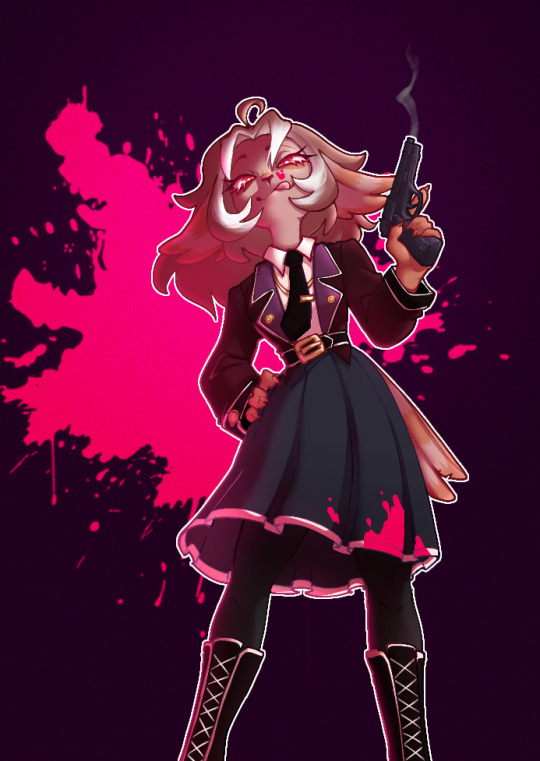
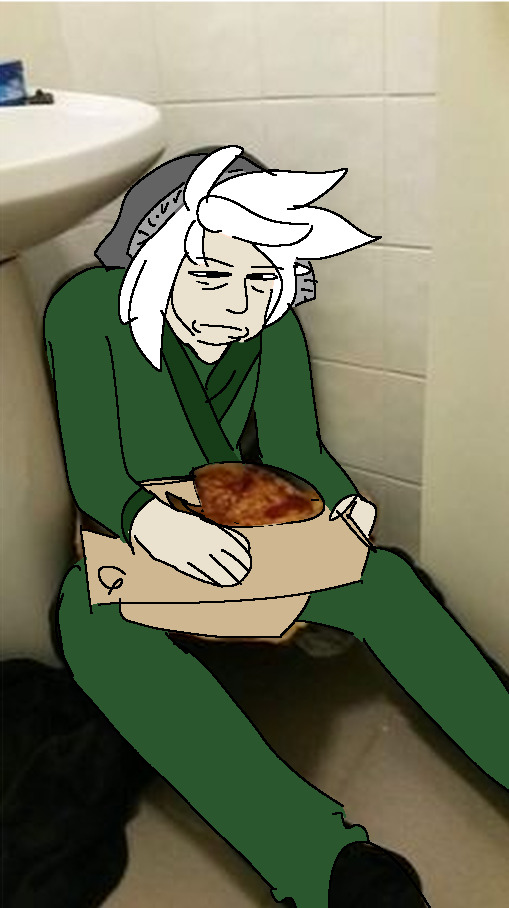


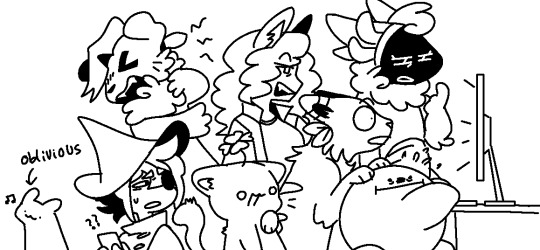
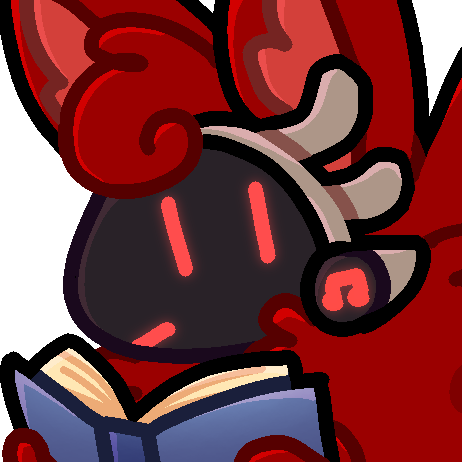

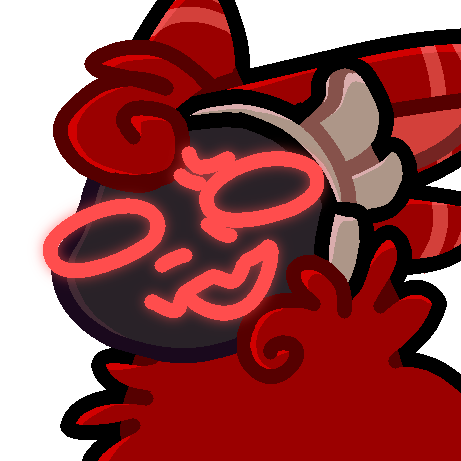
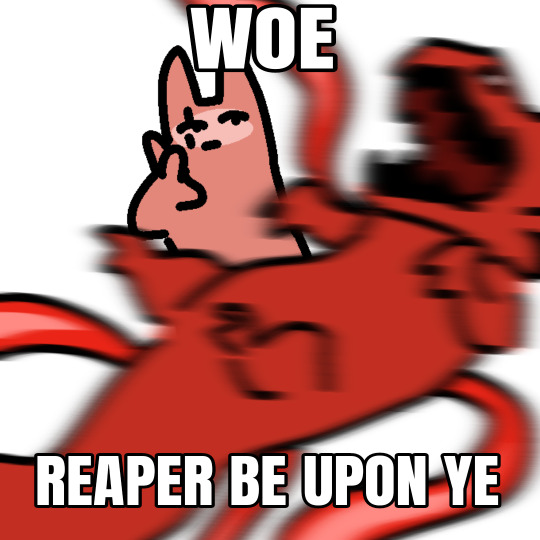
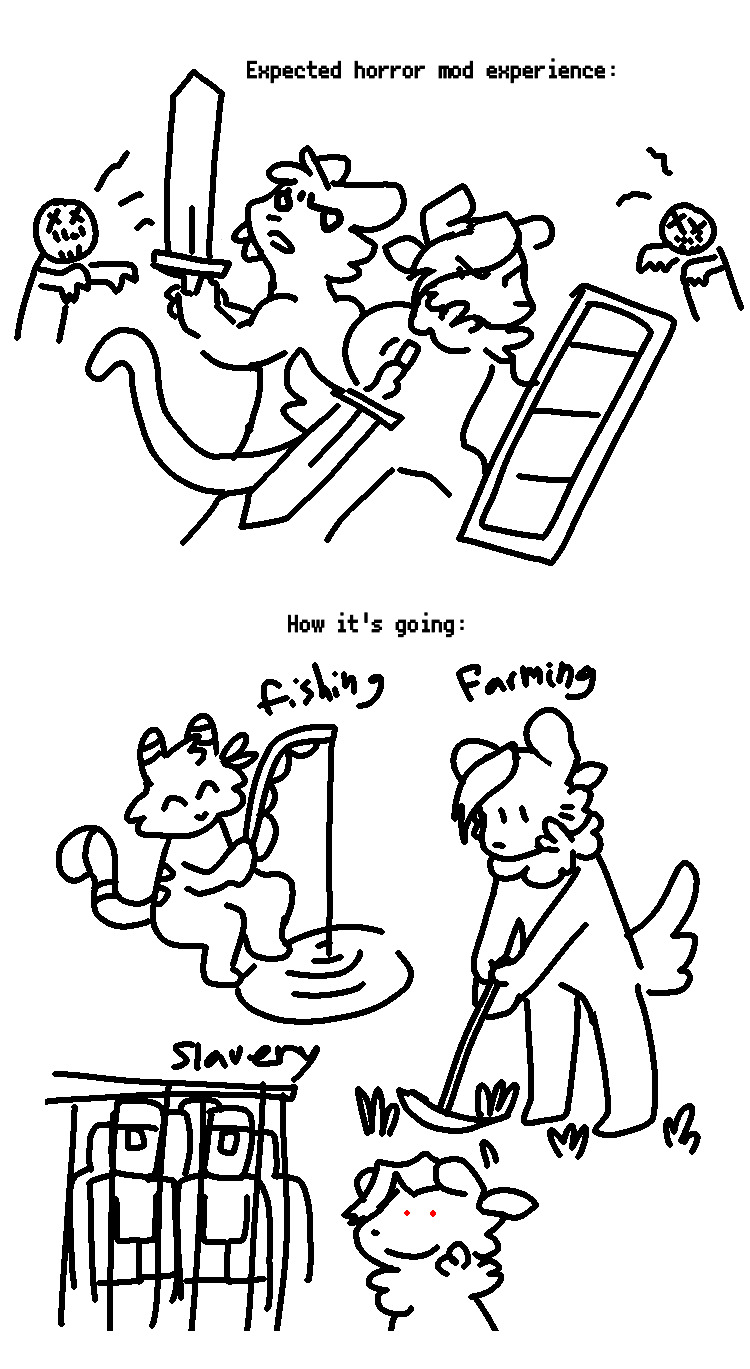
Stuff I've made on my phone, I guess? Of varying levels of "quality"
#rain world#animation#art#Context: image one is oc named Apryll that I love. She's 6-7 years old now lol#Next four pics are random stuff for my buddies on disc#Technically the monk one is for a discord bot that a different buddy is building because music bots SUCK#And the long one is that one time someone decided to stream something SPICY in GENERAL VC#The three emoji is my bae phiiinnn#You do not have permission to use them#Looks at the people that use my art as emojis (/pos I think it's really funny)#The hunter one is my ongoing Every Region Mod playthrough where for a time I had a reaper lizard that I would just throw at enemies#(come with me + lizard eggs mods) and delete all foes. It was fantastic.#But I have since replaced the very valuable and helpful lizard with two useless children that I love very much#Also apparently this isn't common knowledge but you can increase global rep with lizards and just. Be pals with all of em#By default.#Doing that with scavs and lizards eliminates half the threats in the game basically permanently#And the last image was the culmination of several dozen hours in Fear Nightfall + that arachnophobia mod-- it was surprisingly fun.#Very grindy#Not... scary. At all. Lmao#Anyways maybe I'll post some animations or something later#Probably not#I keep trying to finish them before posting any wips aka I never post
44 notes
·
View notes
Text
There's only one person I truly hate with all my being
#and its some random bitch from the internet#fuck you jackal#talking about how I started hating him would require TRIGGER WARNINGS.#he almost made me fail my freshman ELA class because I had to spend all hour comforting my friends who he hurt#then all was forgiven because “he's a kid! he can change!” i never forgave him and he never truly changed#he tried to tell lies about me to my friends#and. for context. this was on discord#it was a community where I was one of the 3 pillars of it. and I'm close with the other 2.#me C and H were the people people wanted to be friends with. or wanted to *be*. we were the top 3 of everyone! and im not being conceded.#twas a small community#I was known for being skilled! but also. people thought I was kind. (some people thought I was bossy because I was kinda strict)#< (strict being I don't tolerate bullying or slurs at any capacity.#but so. when Jackal lied to H. H knew it was bullshit.#anyways Jackal stuck around somehow even tho everyone KNEW. The Jackal Situation was an ARC in that server.#anyways C made Jackal a mod over a year later bc la-de-da-de-da people can change~ and he wasn't a dick. for about 5 minutes.#he got fired today and i was fucking ECSTATIC#I hate him#he thinks hes hot shit. he's hot garbage is what he is#he's so tone deaf and abused power constantly#i never stepped in because I have such a strong hatred that i can never be fair to him again#im permanently against him. he'll never ever gain any respect from me.#he lied. he baited us. he made my friends spend so many sleepless nights crying. he tried to make them die by saying theyd go together.#i saw through it.#anyways I like to believe I have a good judge of character bc he always made me uneasy#he gifted me nitro and was polite before baiting us. but i was like. ehhhh. what's wrong w him?#anyways he's a pissed off bastard now#anyways heres some previous life drama hooray
32 notes
·
View notes
Text

releasing this from the hj discord dungeon because the public populace was in agreement also i'm chronically offline on tumblr and need to fix that for my chronically online ahh
#hand jumper#webtoon#sayeon lee#she couldn't even enjoy herself once she gets into the decent university because she got sent to the corps sayeon lee my giiirl#SHE'LL NEVER BE ABLE TO BASK IN THE GLORY OF VALEDICTORIAN BECAUSE SHE WAS CONSCRIPTED 😭#bro she's built like those kids in school who dump social interaction the moment exam season comes around#she's built like and earned that first honours fr.#but the corps said nah so she did the one thing those kids do make life even HARDER for themselves#even if in context it's no even hard it's just a matter of survival in the corps so success is the only option lest you die#hj reminds me of kaiji a lot with how they handle this but they're like two different genres but i digress#so she created TWO short term goals that forced her to hammer down her if not reinforce her previous values/beliefs#and if you read fp or wait until this tuesday lemme tell you rn it gets worse#which force her back into her shell and wall she's built#which is fucked up bc juni's wall is coming down when cell 4 didn't die as quick as she'd thought and surpassed her expectations#sayeon try not to be any characters narrative foil/parallel challenge fail 1000% speedrun#this only gets worse in fp and while this was in my drafts since the morning#i will say i literally just had a conversation abt this with my g bigbrainmanyvibes before prematurely leaving for lunch#but i set an alarm to actually post all the memes i made here so imma do this one now then the rest later#JOIN THE HJ DISCORD!!!!!!!!!!!!!!!!!!!! IT'S FUN!!!!!!!!!!!!!!!! AND AWESOME!!!!!!!!!!!!!! AND WAY EASIER TO USE!!!!![to me......]#PLEASE!!!!!!!!!!!!!!!!!!!!!!!!#that's it for my obligatory plug for the hj discord you can stop reading now i you haven't already stopped because i make this thing a diar#anw GLORY TO SAYJIN NATION!!!!!!!!!
146 notes
·
View notes
Text
The fandom when Anya is nice to jimmy and compliments/butters him up after the crash: obviously this is a fawn response. She doesn’t actually think these things about jimmy, she is simply trying to protect herself against a volatile, unstable person by placating him
The fandom when curly tries to placate jimmy by telling Jimmy he’d fix things, after being very nervous about jimmy’s anger and reaction when talking to Anya right beforehand and his heart racing so hard on the way to confront jimmy that he’s likely on the verge of a panic or anxiety attack: hmm. Obviously everything curly is saying to jimmy here is completely genuine and not motivated by anything. He obviously doesn’t care about the fact jimmy raped Anya and only cares about helping jimmy at the detriment to Anya. He’s a rape apologist. There could literally be no other potential explanation for why curly is saying the things he is saying right now. Let’s take everything curly is saying here completely at face value and not analyze anything else about Curly’s behavior or the rest of the scene.
[seriously why are people only capable of recognizing the fawn response in Anya and not Curly]
#to be clear the people who say Anya had a fawn response are RIGHT!#but since curly is a man clearly there’s no way he could be afraid of jimmy#listen. I’m not trying to say curly is completely flawless#and I get why people get mad at curly for what he said to Jimmy there after finding out what jimmy did#because yeah out of context someone telling a rapist stuff like “I’ll fix things” “we’ll get through this together” “you’ve gotten through#difficult times before” in response to said rapist fearing his life will be ruined after his actions are exposed#is deplorable#but you can’t just put things in a vacuum#it was a very difficult situation curly was in. regarding of how he confronts jimmy he’s going to be stuck on a ship with him for 8 months#and before u say “he should’ve just killed Jimmy!” think for a moment.#permanently ending someone’s life is traumatic for the vast majority of people#and this is someone he’s known for years and years so it would be extra difficult#also like. would Anya even want jimmy to be murdered? sure she’d feel safer but I feel like she’d have complicated feelings about it#idk like. it’s a very tricky situation#can’t even report Jimmy to HR because that would result in everyone’s pay getting docked.#which would just hurt Anya since she has no savings#curly mouthwashing#fandom critical#would it felt been more therapeutic for fans if curly instead violently confronted jimmy and beat him up for what he did to Anya? yes#but would that have actually helped Anya? no#if anything it would’ve likely made things worse because Jimmy could’ve just taken his anger out on her afterwards#because they’re on a tiny ship together. only way they could have eliminated the threat to her would be like. tying jimmy up for months#or shoving him in a cryptopod. but knowing pony express I bet improper use of cryptopods would result in docking everyone’s pay#and it would’ve been serviously hard to keep jimmy tied up for months. it’s not like there’s a prison cell on the ship#the crew is already stretched thin do u think they could have someone constantly watch him for 8 months??#because that’s likely what would need to happen if they just kept him tied up#there aren’t any good rooms to lock him in#yes it would’ve been better for everyone in the end if Jimmy was tied up or shoved in a cryptopod or killed#but how was curly supposed to know that. hindsight is 20/20#yes curly should’ve taken the threat jimmy posed more seriously. and handled the situation better. but there were no easy solutions and—
49 notes
·
View notes
Text




compiled whatever this is (and I run out of tag space)
meh HoT gifs (3/?)
#alek gifs#ninjago#ninjago krux#ninjago acronix#hands of time#time twins#alternate title to this series is : stuff i noticed after watching this season 10 whole times#okay actually thats a lie. i realized this the 3rd time around#i think of acronix and how he barely makes any decisions for himself and i go crazy#ppl equate that with him feeling forced to do stuff.. uh hes always been a follower guys!!#cue him calling wu “master wu” even after the twins betrayal. him liking machia bc shes “mean” and bossy#he has no issue with following orders lol. prepare for a long acronix rant one day#contexts -> gif 1 barely counts i just wanted to include him looking at krux. he does this a lot during that fight#gif 2 is before they kill blunck and raggmunk (idk how to spell their names still ... sorry)#gif 3 is before they were going to kill wu in the golden hour legacy short. which is canon !!#gif 4 is before they sent themselves into the temporal vortex#that one post that was like “are we still doing revenge? yeah? cool” bc thats basically acronix#there is something fundamentally wrong with these two's brains but idk how to describe it#krux who literally lost his mind after losing his brother to the point he adopted an entire identity#“he just needed to go undercover!!” counter point as soon as acronix came back he was unable to pretend to be saunders. he acted super weird#like when kai was in the museum he couldnt pretend to be this person he wasnt. acronix was back !!! so was he. krux was 100% going to kill#the smith sibs if maya and ray didnt comply. also.. canonly they knew him when they worked as teachers back in s3. he watched them grow up#and pretended all was well meanwhile their parents were being forced to work and slave away to build the iron doom. he is not normal#then you have acronix who thrives off of violence and is described as throwing himself into battle like a blunt object. has no regard#for himself as a person and just takes (almost) everything his brother says as gospel. s7 couldve done smthn really cool with how#the only thing the twins ever really disagreed on was technology. also ive went on a semirant about how krux's hatred for tech was misplaced#hatred for losing acronix. wanted to travel to the pre modern era? okay well whyd he pick 40 years ago specifically. also NOTE that they#went back after their past selves had lost. they wouldve faired better if they went and helped their past selves. also the reversal blade#had already fallen so when the twins went back in time there was two kruxes. he literally went back to when he had been all alone for the#for the first time. he went back to when his life was ruined and his brother was gone!! but he had nix with him this time . ughdhf
50 notes
·
View notes
Text
a while ago i saw a post by @sideblogdotjpeg about how the cycles in c3 seem a lot more personal/familial. and i kind of went insane in the tags at the time and i’ve been thinking about it a lot since because like…
you have the heroic cycles that the band of boobs parallel/break on this large scale. the idea of these broken trios of adventurers is there throughout the campaign, but they really start to engage with it towards the end— with the divine hearts, and thiala, and the wheel of suffering/wheel of joy idea. the thing hardwon says as he takes the divine heart, that no matter what anybody chooses from then on it’s with love in their hearts, i feel is very relevant to how they break the cycle. they love each other, and they choose over and over to hold each other tighter rather than be driven apart.
and on the other hand, you have duck team’s refusal of fate vs their family’s resignation to it. look at swag working with mothership, oliana’s contrition, and the stuff that is currently ongoing with gowan. you know— sol is a version of swag who fully rejected mothership and found his friends instead. callie refused to be a part of her family’s business, and her love for the wild and the serpents is giving the world a chance. calder, when he makes the deal with ultrus, telling callie and sol that he trusts them to save him. and now calder is refusing to sit back and let gowan handle things in the ice knife.
it's not that duck team aren't trying to save the world. they are. and it's not that the boobs didn't have a personal connection to the cycles they were breaking. they did. but it's like... well... how do i put this into words. right--
the song melora's boon plays when the boobs arrive at the heart of the world and speak to melora. when she talks to beverly about duty, shows him the places he faltered and how at the last second, he gets back up. (later, when they face thiala, bev doesn't go unconscious once. at one point, he's the only one standing.) for sol, this is the song that plays when he expresses his fear of going down again. when he admits to callie that he's scared of the day that she and calder are down and he's the one that needs to stand up alone. when callie says she's not afraid of that day, and sol finds himself empowered by the mushroom in his chest. the moment that sets up sol's long death monk ability, where he's able to refuse to go down and keep on fighting.
melora’s boon is also the song that plays for moonshine’s boon at the heart of the world. there are actually two songs in this scene, hardwon’s is different, and the transition back happens when melora says there’s a part of herself that moonshine hasn’t embraced. when she speaks to moonshine leading her people to a better future like an alpha wolf leading her pack. for callie, it plays when she tells hardwon and sol that she’s a liability and she needs to change— to embrace winter— in order to get calder back, even as they reassure her that she doesn’t. it also plays when callie asks the others to help her protect honeysuckle while he’s weakened. when they promise to lead honeysuckle home and free him from his connections to gromdal.
the writing on the wall plays when the boobs reach the court of gods. there's the wall of prayers there, and they hear the prayers of the people of bahumia, reaching out to them. prayers of protection-- for and by them. prayers that put the future of bahumia in their hands. for callie, this is the song that plays when she sees aryox's carving of her reaching the cave. when she realizes her mother acted the way she did because she could see what was coming in the future. when she realizes her mother was leaving the world in her hands.
the songs that the boobs first encounter at the end— when they’re basically demigods stepping up to face thiala— return for duck team in these personal moments. when sol finds the strength to refuse death. when callie talks about embracing winter, her mother’s season, something she eventually finds strength in, to save her friend. when callie asks the others to help honeysuckle, one of the serpents that she’s promised to protect partially due to the harm her family caused to the wild. and when callie realizes her mother saw the future and acted as she did because of it, pushing callie to walk the path she’s walking now.
anyway. this was a post about naddpod music.
#naddpod#ba2mia#naddmusic tag#sorry to leave calder out his story is too ongoing to fit yet#(and we haven’t had any songs that fit in his arc either)#if we get a late stage bahumia song during this arc#for calder and gowan im gonna fucking. die.#truly just going insane over here anyway#like obviously on a meta level the reason the songs were never used for the bob#before the endgame is bc they weren’t written yet#but like. when you start to think about it#it kind of fits that it happens like this#there’s also more examples like i just want to know you’re taken care of#which is used in c1e91 for moonshine and paw paw’s convo#being used for callie and foster in ep10#of c3#specifically in the context of callie’s love and her fear of loving big#(contrasted against moonshine resigning herself to hell and her fear of that future)#anyway if i keep talking abt this i’ll explode so#enjoy? i guess?#hanbles
74 notes
·
View notes
Note
Your recent update made me wonder about something. I don’t know how much you know about this but wanted to try asking anyway. Hopefully this makes sense? Why would the English translation choose to censor things? I assume translations are being done in America where queer things are slowly becoming more accepted but is that a factor? Are the translators themselves changing certain things due to their own biases? I don’t know who they are and don’t want to assume anything about them, but I can’t help wondering if that’s part of the reason? Or is it because of something like, for example, sometimes movies or TV shows have certain content removed based on where it’s being aired, so is it something like that? Is the game being released in regions where queer content is banned or removed? Now that I wrote it, I feel like this is the most likely answer but what do you think? I basically just rambled in your ask my bad. Also, do you know if the Korean and/or Taiwan servers have censorship too?
oh there's more than just the Asahi thing and i have mentioned it in passing before but i'll cover it properly here. "the miles i fell in love with is so cool" -> "it was so cool! i guess that's miles for you" is definitely the biggest example though.
First off, a minor thing. it doesn't really happen anymore but in the earlier translations they quite often use words other than partner, like "pals" and "buds", in the VBS story. Probably one of the best examples of this would be An and Kohane's 3rd kizuna title, which the JP name was often fan-translated as "Making each other better" or "Raising each other up", and is called "Two supportive pals" on EN. Which does have the same meaning but the "pals" seems so unneccesary when they could've used partners. The original text is Takameau futari, the first part means "to raise" or "to lift" and futari means "two people" or "a pair/couple". So it technically is a good enough translation but using pals when partners would be more accurate to canon just seems.. off.
I’m assuming their avoidance of the word partner is because it could easily be misinterpreted as romantic, but they seem to have moved on from that at this point.
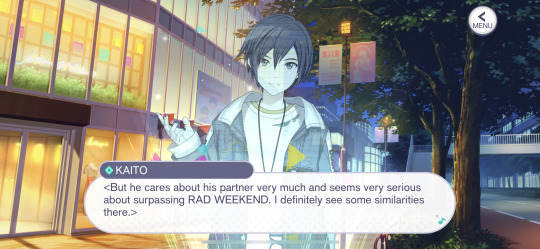
There's also THE POWER OF UNITY where they switch out "love" (daisuki) for "cares about a lot" when KAITO is comparing the relationship between Arata and Souma to Akito and Toya. Daisuki literally means "likes a lot" so often you'll see people translate it as love, though likes a lot is still valid. "Cares about" is not a direct translation but definitely can still convey the same meaning, so again instance of valid localisation it just seems like an odd choice when using love would've conveyed the exact same meaning and been more true to the original.

Then you've got another instance of them not translating daisuki correctly in Dear Me, As I Was Back Then (sorry this one is a wiki screenshot my phone died). This is worse. Like I guess if you really want then it does have a close enough meaning to the original. Like I guess daisuki meaning "like a lot" or "love" could be localised as "you're the best" if you really wanted it too. But even then, the line before this is "I'm gonna show just how much I admire her!". Minori's shout of "I LOVE YOUUU" from the original would be way more fitting here. "You're the best" feels too casual and buddy-buddy - even if Minori didn't know Haruka at this point, Haruka still had a big impact on her life and imo "I love you" would be the best to use here.
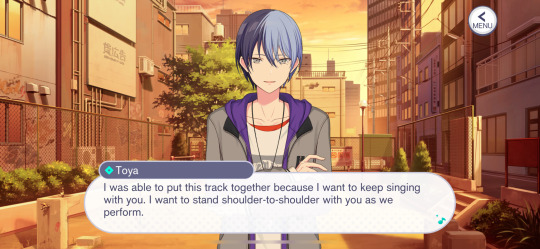
There’s also this one from Walk on and on that removes one key thing. In the original, Toya says something more along the lines of “I was able to make this track because I want to continue to be a partner who can stand shoulder-to-shoulder with you from now on and always”. This is a bit more similar to the Asahi incident in that they’ve restructured the sentence to make it two, adding in the thing about performing which isn’t even there originally, and replacing “korekara saki mo zutto” with “keep singing with you”. And “keep singing with you” still works, but it’s much more toned down, let’s say. You know what really is odd about this translation though? If the quote I put seems familiar, it’s because it’s also the name of Toya’s event card. Kinda odd they omitted that from the story then, huh? The thing is the translation of the card is very accurate so removing it from the story starts to seem intentional, especially when everything around it is accurately translated like with the Asahi incident. Also doing this removes the fact that the card name references the story so what the hell are you doing EN? It's the same sentence, if you can translate it correctly on the card you can translate it correctly in the story.
There's definitely more than this, this is just what came to mind first and I don't want to make this post too long.
These were certainly... choices. Especially with the ones that avoid translating daisuki as love because they do translate as that on other occasions, most frequently with An and Kohane. I'm assuming the reason they omitted it with the guys is because it's far harder to pass off guys saying that they love each other as platonic because societal expectations or whatever, but I'm actually surprised by the change to Dear Me because normally they're pretty good with Minori and Haruka usually. Like they've translated daisuki correctly for them before and leave in everything else that indicates Minori has a crush on Haruka, so why not this line?
I'm tempted to say that they just change the things that they think are too hard to safely pass off as platonic, but then again they left all of the unsubtle ship teasing in Buddy Funny Spend Time, which has a lot of focus on Minori and Haruka's relationship (and they even added in Haruka saying that Minori makes her heart tickle in her card story), so I'm genuinely not sure why they left that in but then changed one instance of Minori saying she loves Haruka which doesn't even have to be interpreted romantically. Like what is the limit here? An can say she's going on a date (with Kohane) and the WEG regulars can ask who she's been seeing, but Asahi can say he fell in love with Tsukasa's character and it gets removed. Both of them have romantic connotation. The only thing I can think of is that An's comes from a whole card story and event, but Asahi's is one line that's easy to remove. Same with Toya saying he wants to stay with Akito forever.
In other words, it's a mess and I don't think any of what I just wrote is coherent either.
Interpret all of this however you will at the end of the day it’s all just ship tease which is up to interpretation anyway. Except the Asahi thing. That one is a censor.
Oh and the KR and TW servers don’t do this.
#i got this one peer reviewed on both my main account and with an irl who doesn't know anything about the game.#oh because someone will probably bring up the hiraga gennai 1koma i don't consider that one a censor#that one's definitely a localisation bc barely any players would get the joke since gennai isn't well known in the EN server regions#there's a whole discussion to be had over the fact they did completely change the joke and the context which we actually have had before#it was rui's birthday post if you go through my rui tag you can find it.#asks#mod talks#apologies for the quality on this one it's 1am right now for me
151 notes
·
View notes
Note
Omg your instagram story is so right! I can’t believe I’ve never even noticed that, probably because in fanon keith and shiro are so close that I’d forgotten that isn’t canon :0

Deserves this awesome quote which I had to dig out of my sideblog reblogs
#for context - i was complaining how under-served we were to listen how much shiro did for keith and how amazing their relationship is#and then were forced to watch him just recruit him for school and be a decent teacher#like any teacher should#i mean....#any.#like he was just showing basic decency for not throwing Keith away for bad behavior#keith acted as if that man hung the moon#as if he was reliable... took a few punches that were meant for Keith ....risked something for him#wanted to give up his liver or something#gave up his last food in the apocalypse to feed him i dont fucking know#Keith acted as if that guy literally saved his life and we got scenes where Shiro is emotionally manipulating him to stay in school#or to become a leader#never really asking how he feels about it or if he needs help#i thought twice before saying Keith attached to a pile of shit because it was warm#but not thrice#i've re-watched season 1 of Arcane and was so mad about it i couldn't hold it in djdjdjd#i do think they could have a good relationship but what we were /shown/ was just not it too many plot holes to fill#love that the fandom can fill the discrepancies and rewrite those relationships though#and also i was really glad people answered to that story agreeing#i was feeling weird reading all those 'keith and shiro are my fav relationship in the show'#...lance was more warm to the mice than Shiro to Keith '#i feel like it owuld make more sense to me if keith did all of this WHILE being pissed at Shiro for leaving him#or if we saw he finds him unreliable - Shiro was only useful to him as long as Keith followed his rules too#Vander doing all he did for his daughters that shit was unconditional fucking love#vi and jinx never being able to off one another had more raw pure love than that#you know what i mean??? sorry im doing it again.... end of ramble#mezzy out 💀
38 notes
·
View notes
Text
Not me adding annotations to a book to make it more accessible for my mom when she will read it
#i am once again complaining about italian translators not adding enough context and explainations in queer non fiction books#90% of non queer people or people who do not speak english don't have enough fucking context to get certain things#i need tranlators to add the necessary context to make these books accessible for everyone#olay surely mainly queer people will read a book about going outside the binary but if we want more people to understand us#we need to add the necessary context to make these things comprehensible to everyone#both those who do not have a queer background and therefore have never see certain words and those who do not speak any english#why the fuck are we assuminng everyone reading this knows english and the linguistic and cultural context between certain words#most people i know do not know one word on english and since it's an italian translation you should make it completly accessible for anyone#i don't want people to read this with their phone in their hands to look for meaninga here and there#i have had this complaint before and i will keep complaining#it's frustrating because this book makes the concept of going outside the binary very easy and accessible and the translation is not as good#also the translation of this particular chapter did a terrible job language wise too so i can't expect much#the concept is there but oh boy do a few sentences look like they have been translated with google#so yep i resorted to making my own notes because i want my mom to read this and understand it without here needing to ask me for context#i mean i want conversations to start but not because of translation reasons if you know what i mean#and it would be very unmotivating to read a book that has too many words you don't know bc the translator took things for grated#cris speaks#i am done complaining for now#the og book is super good tho i am happy i am reading it again after so many years#the---hermit
33 notes
·
View notes